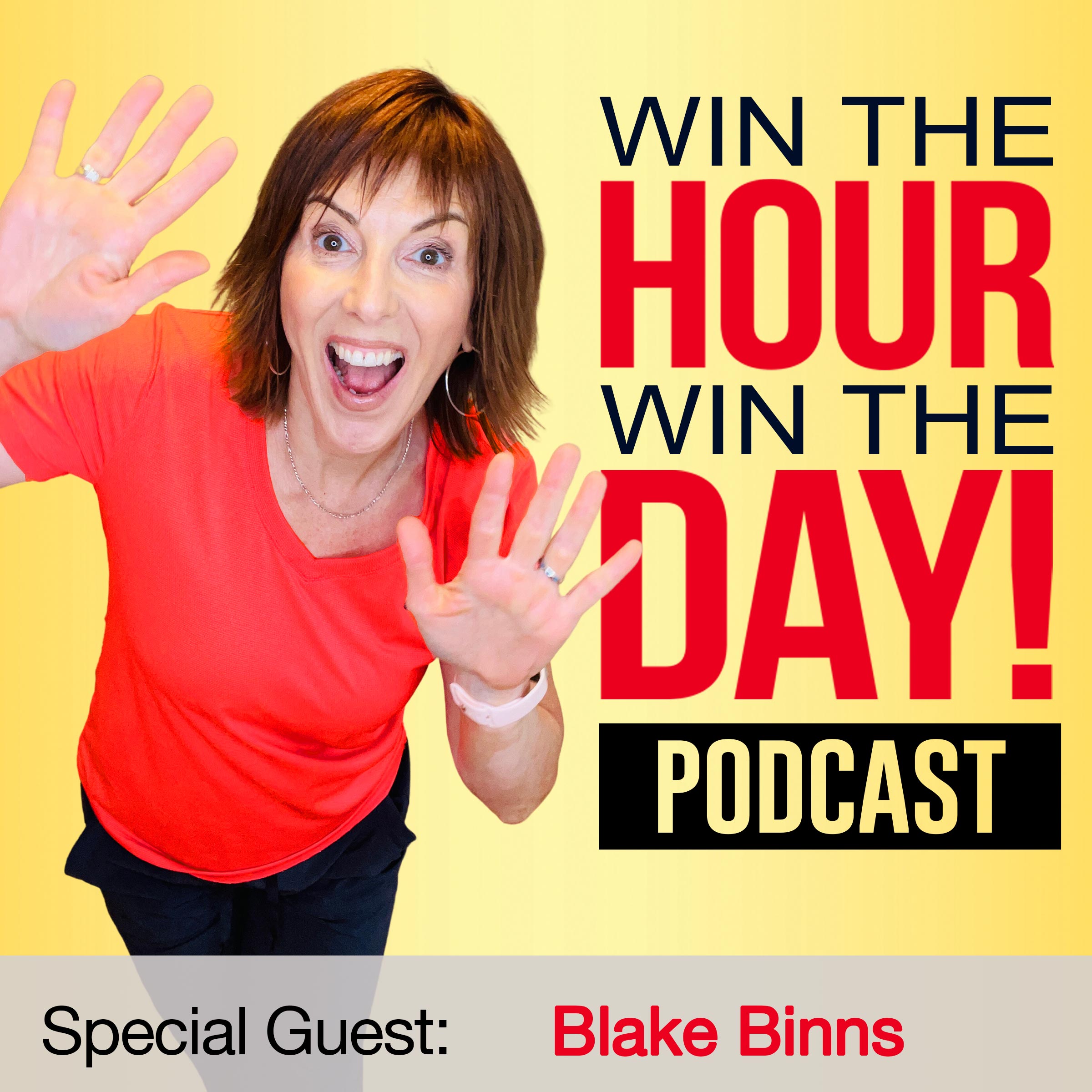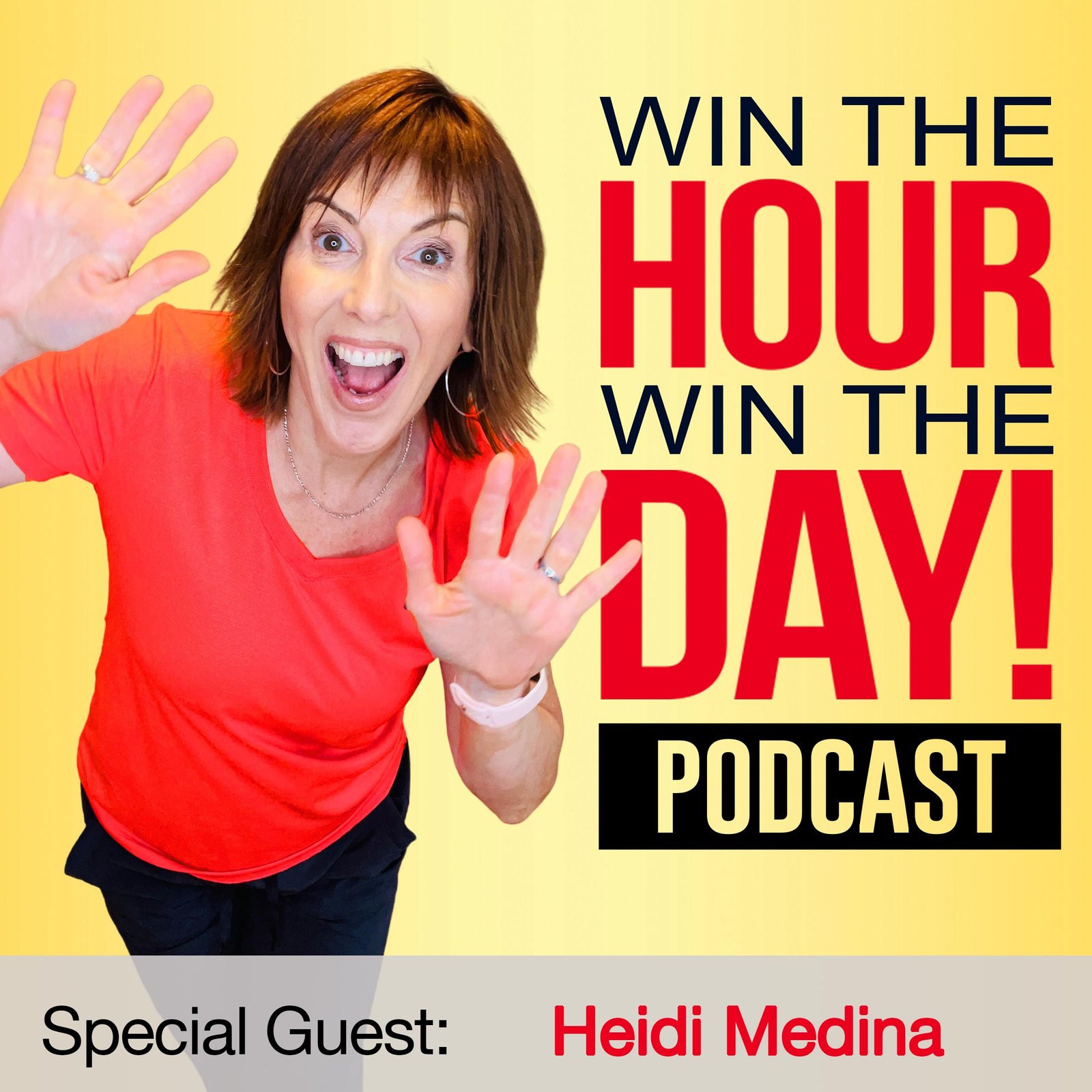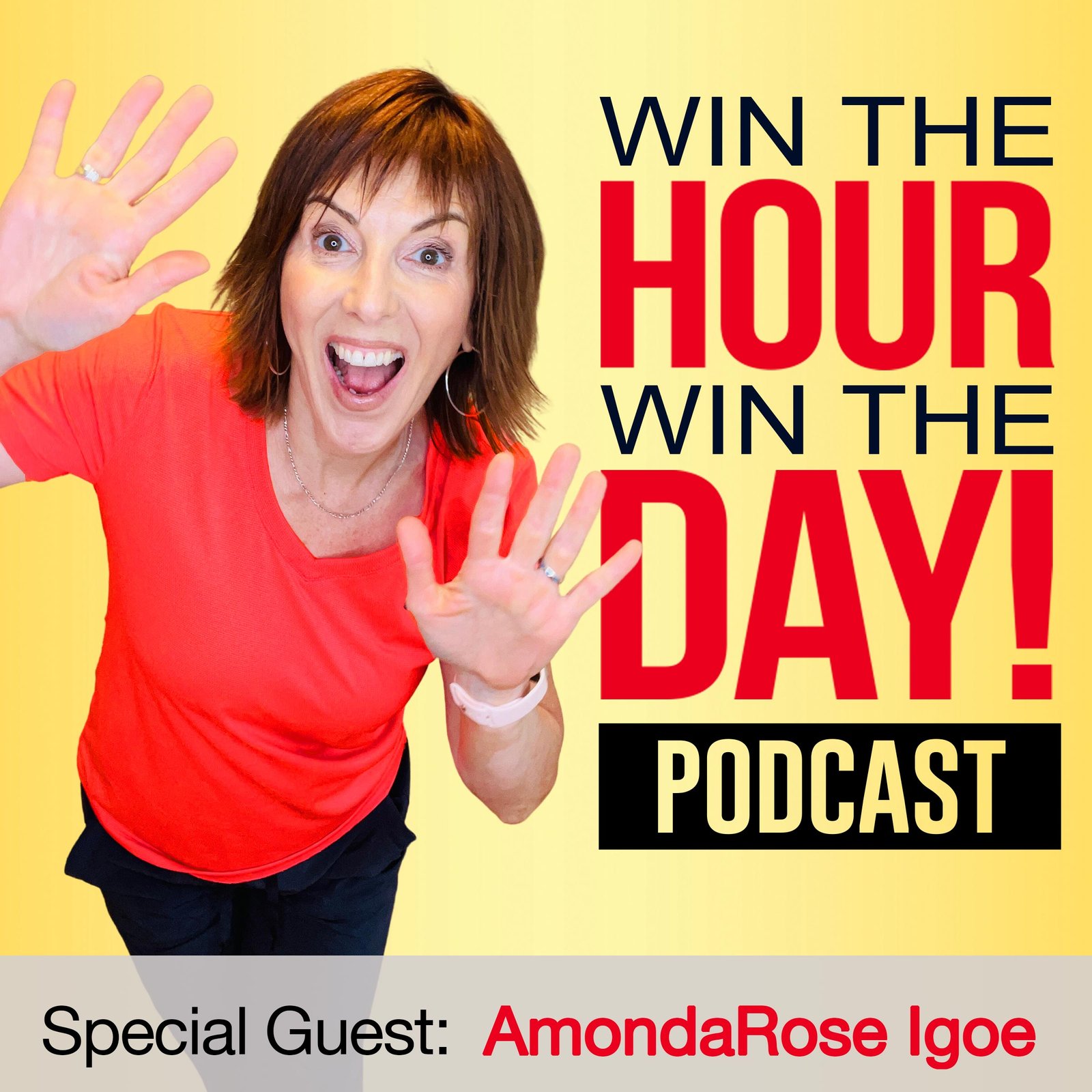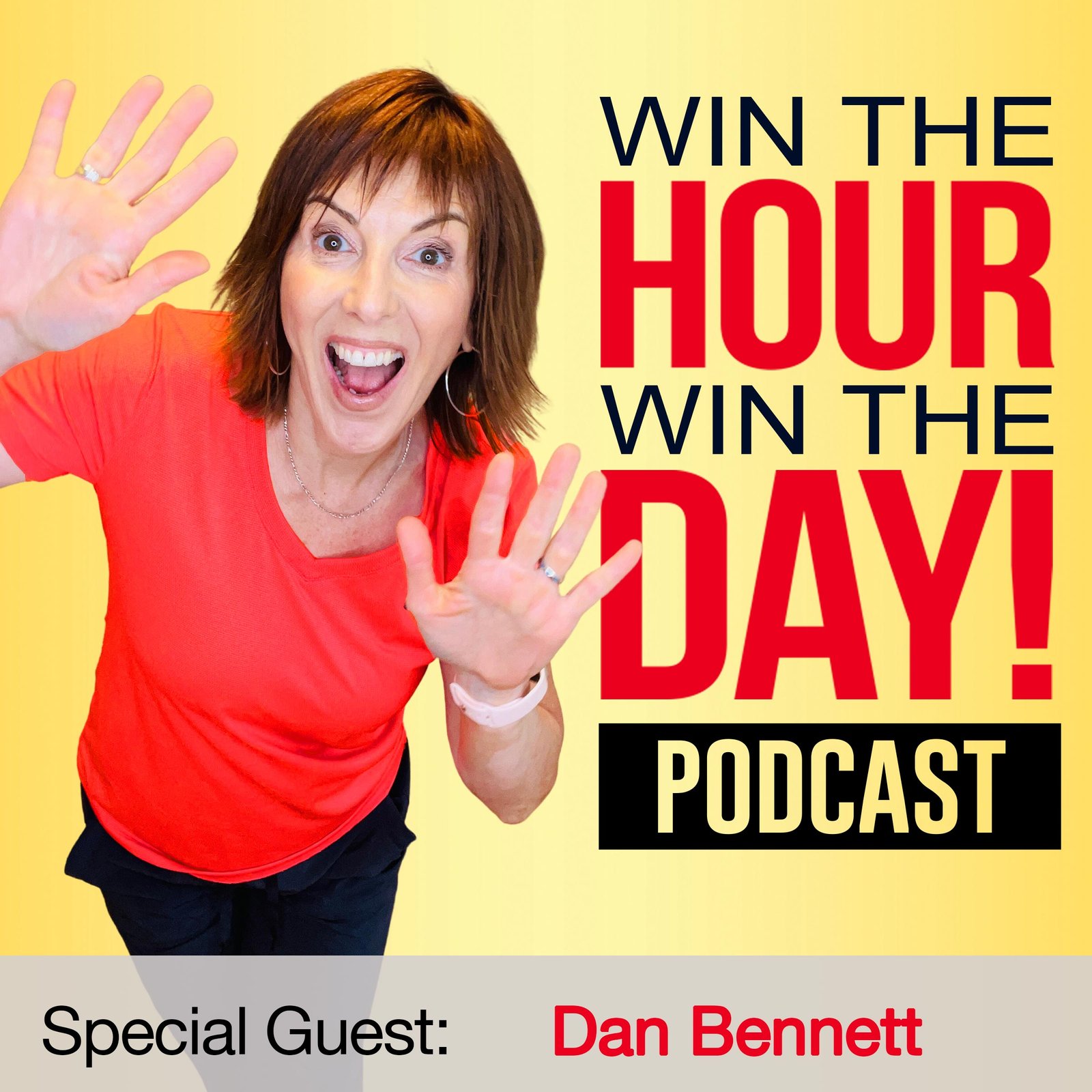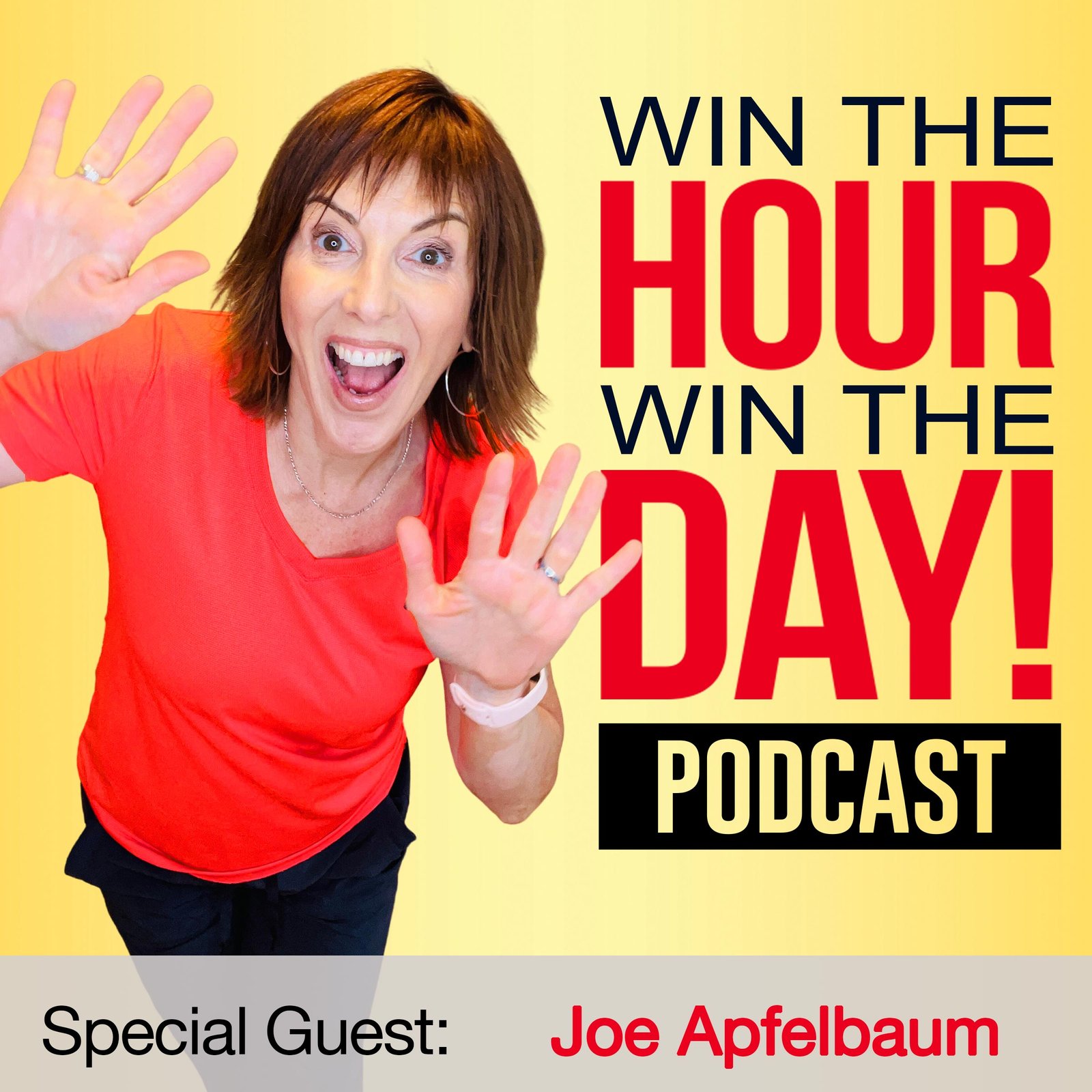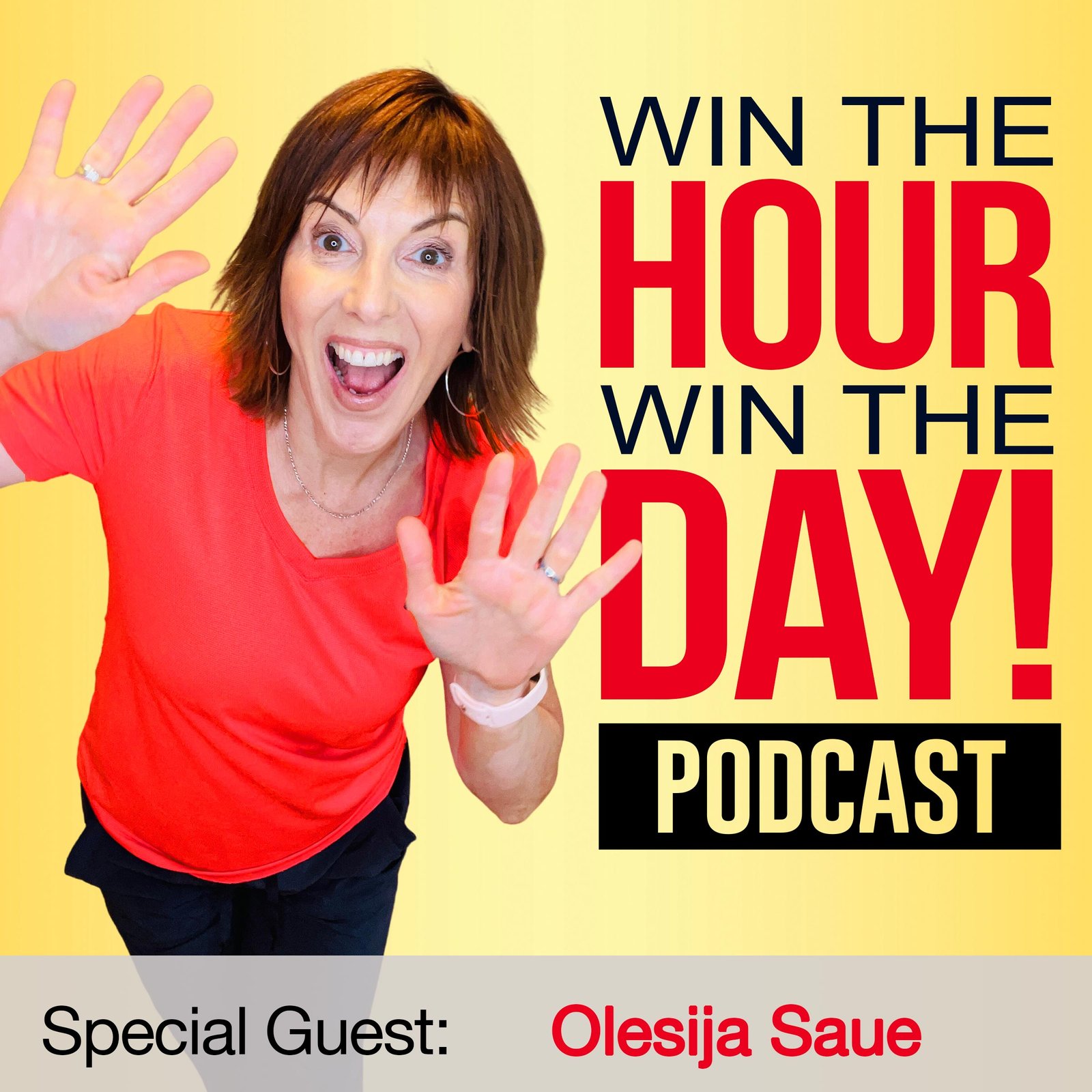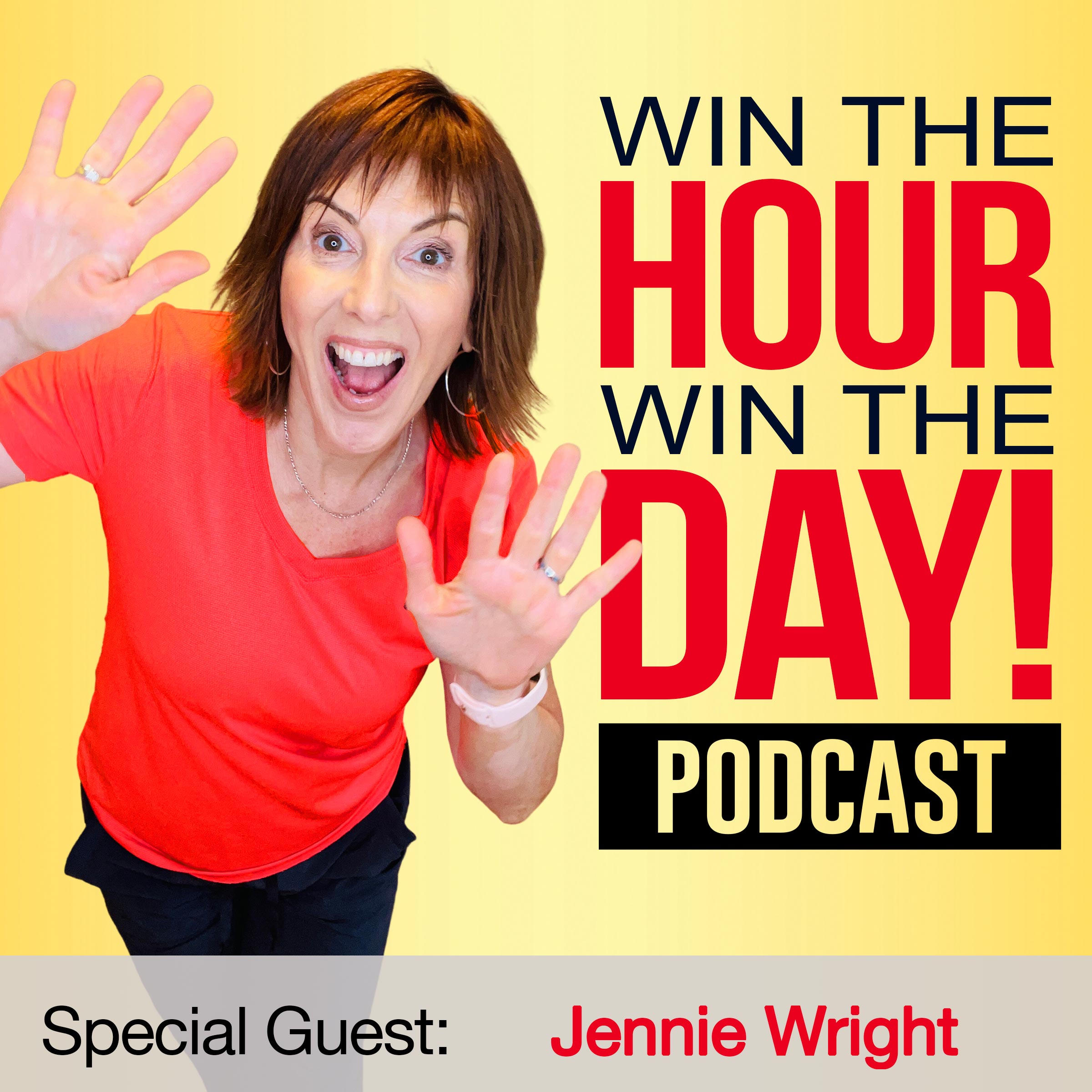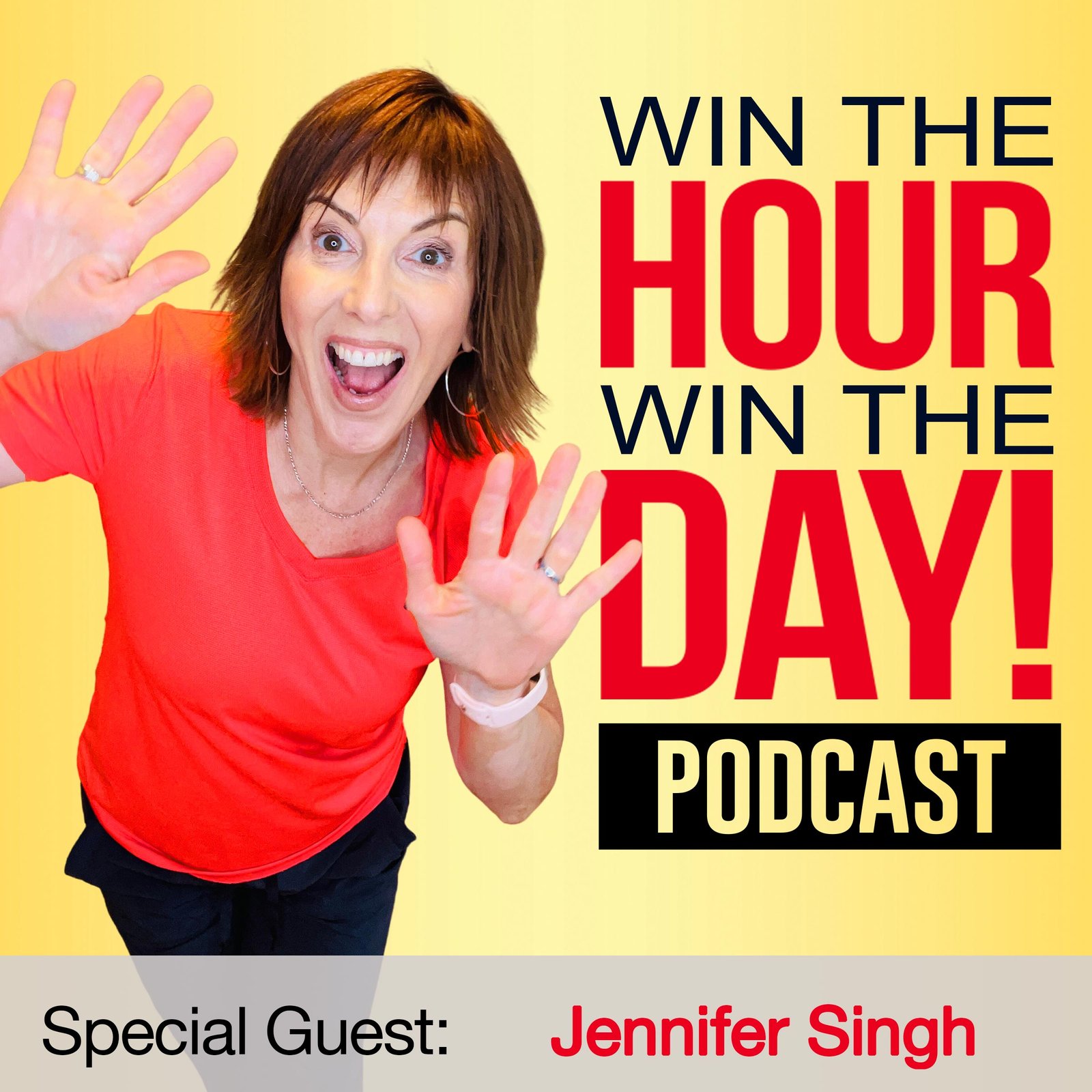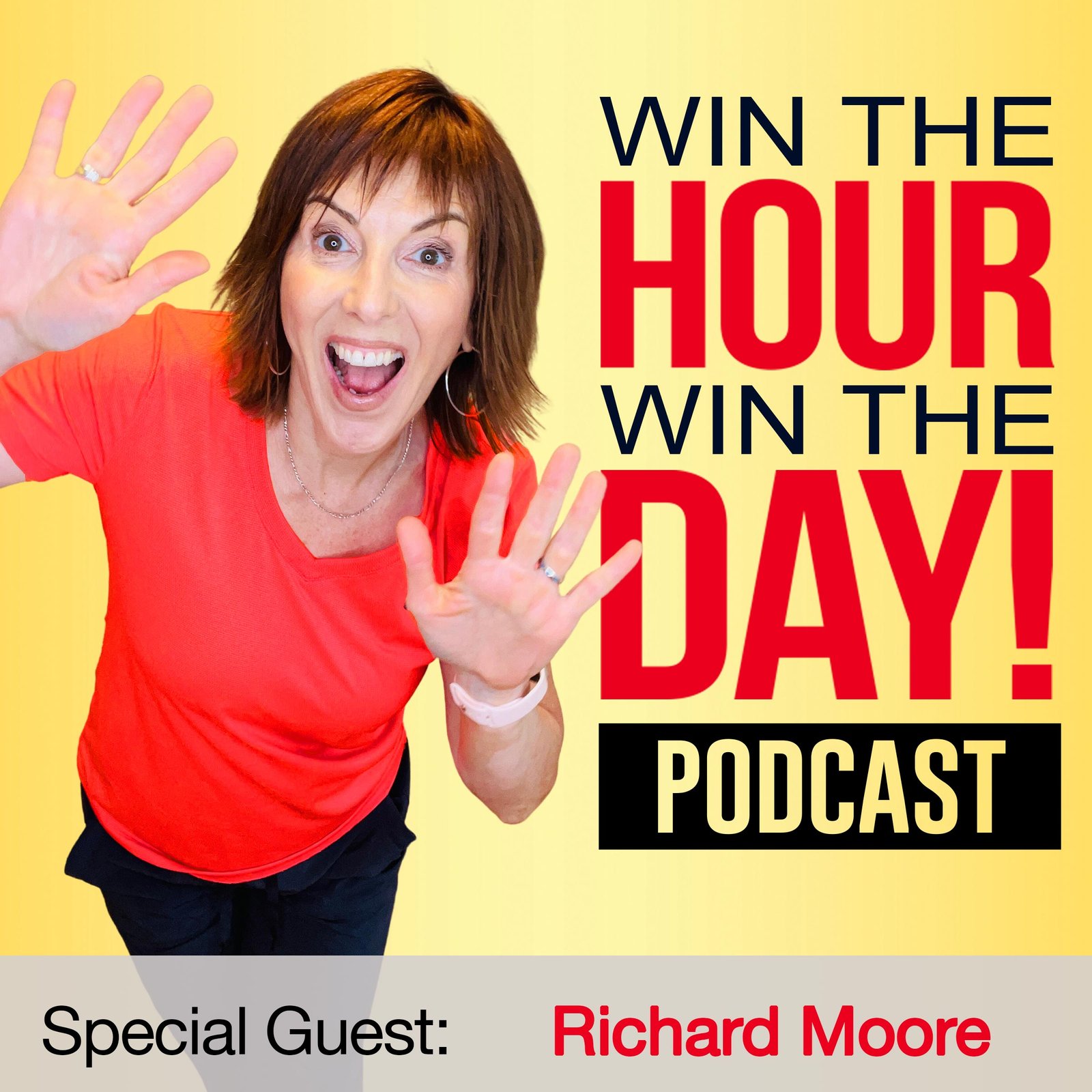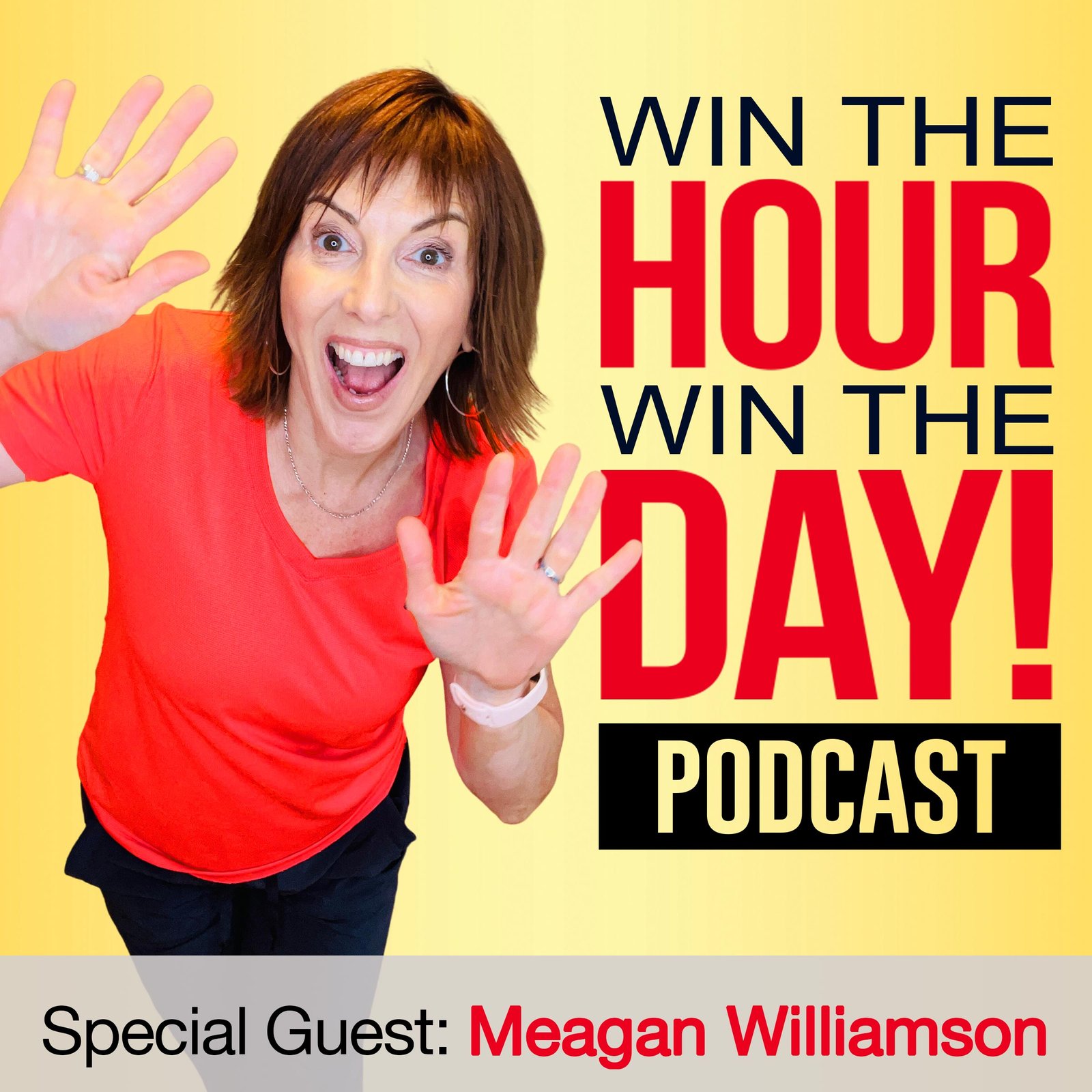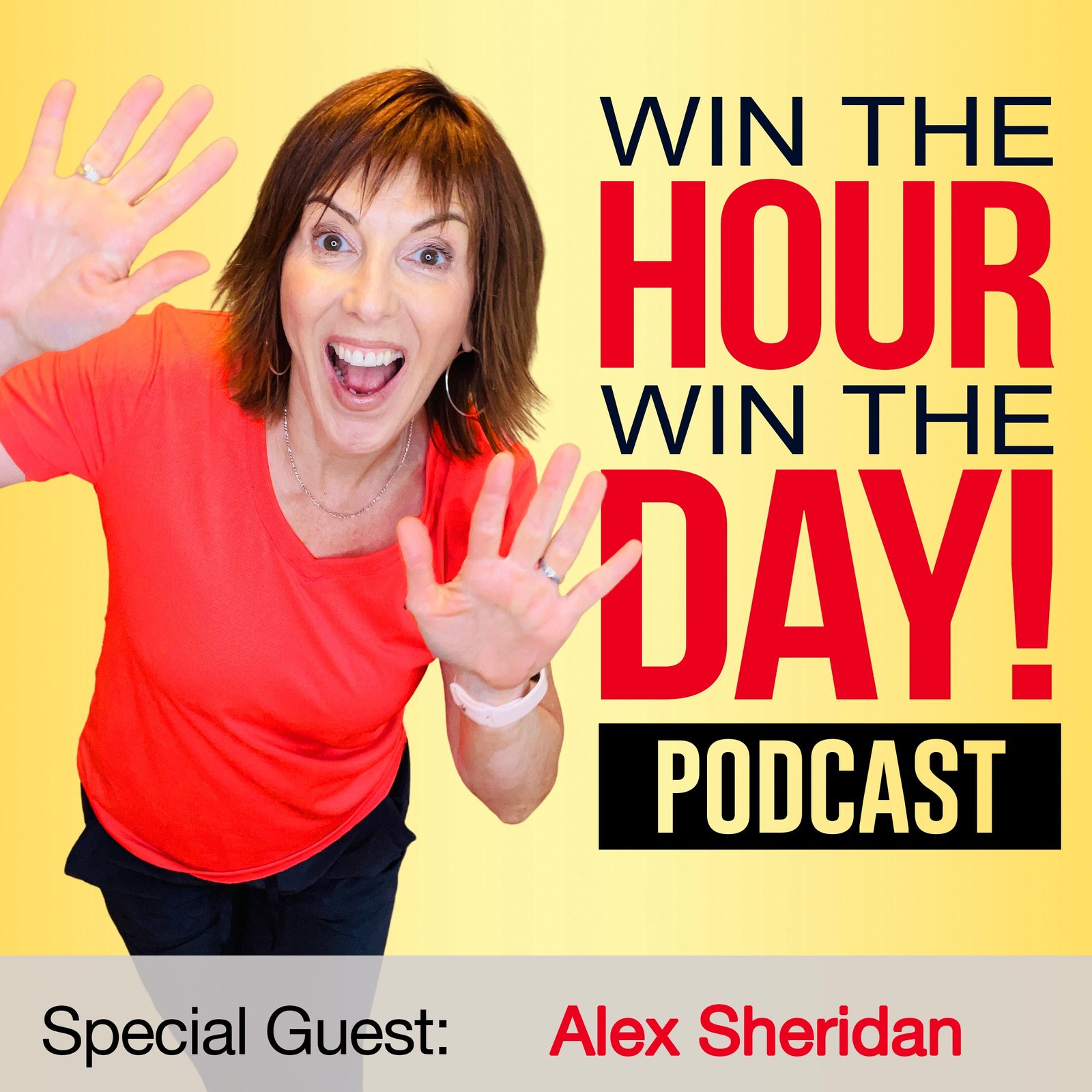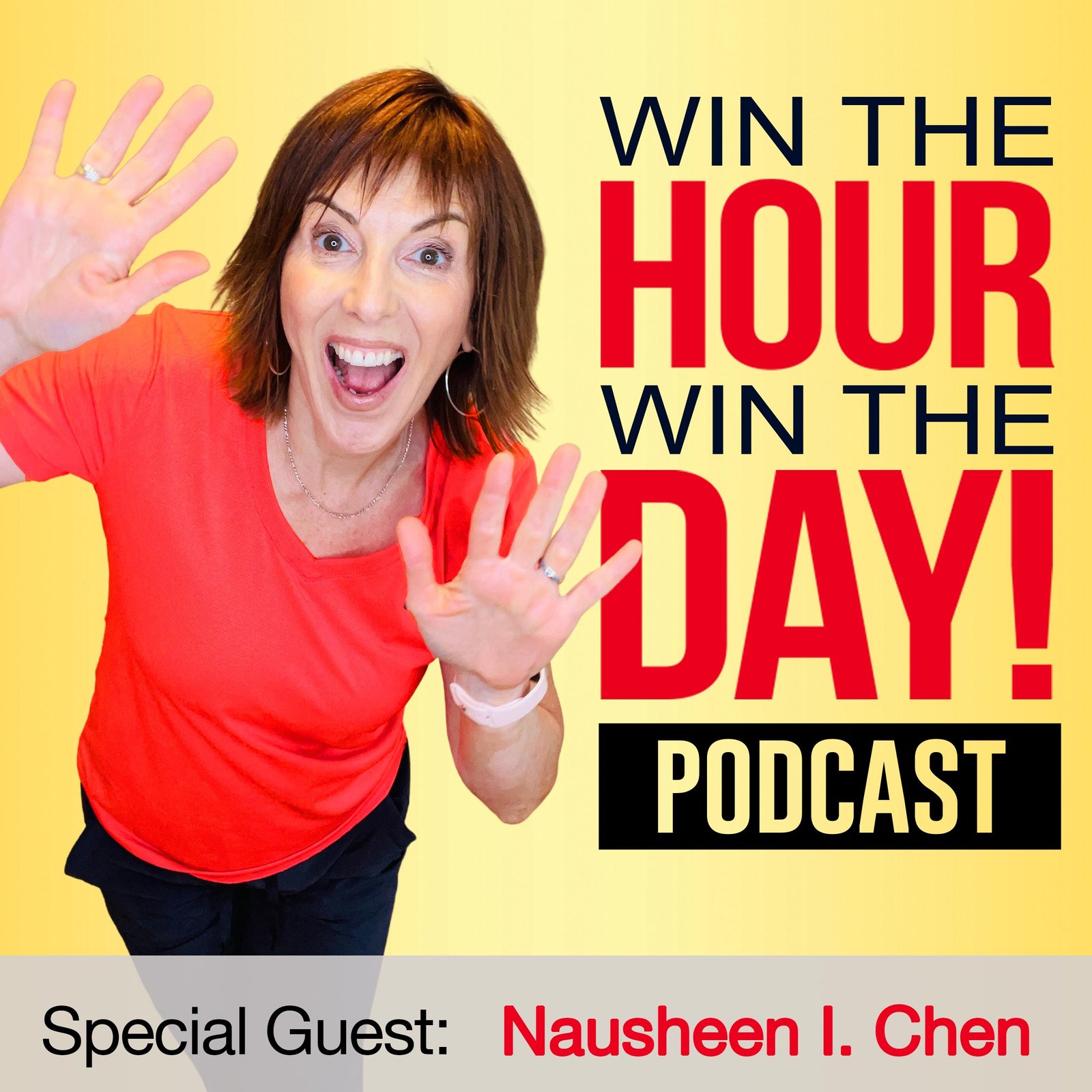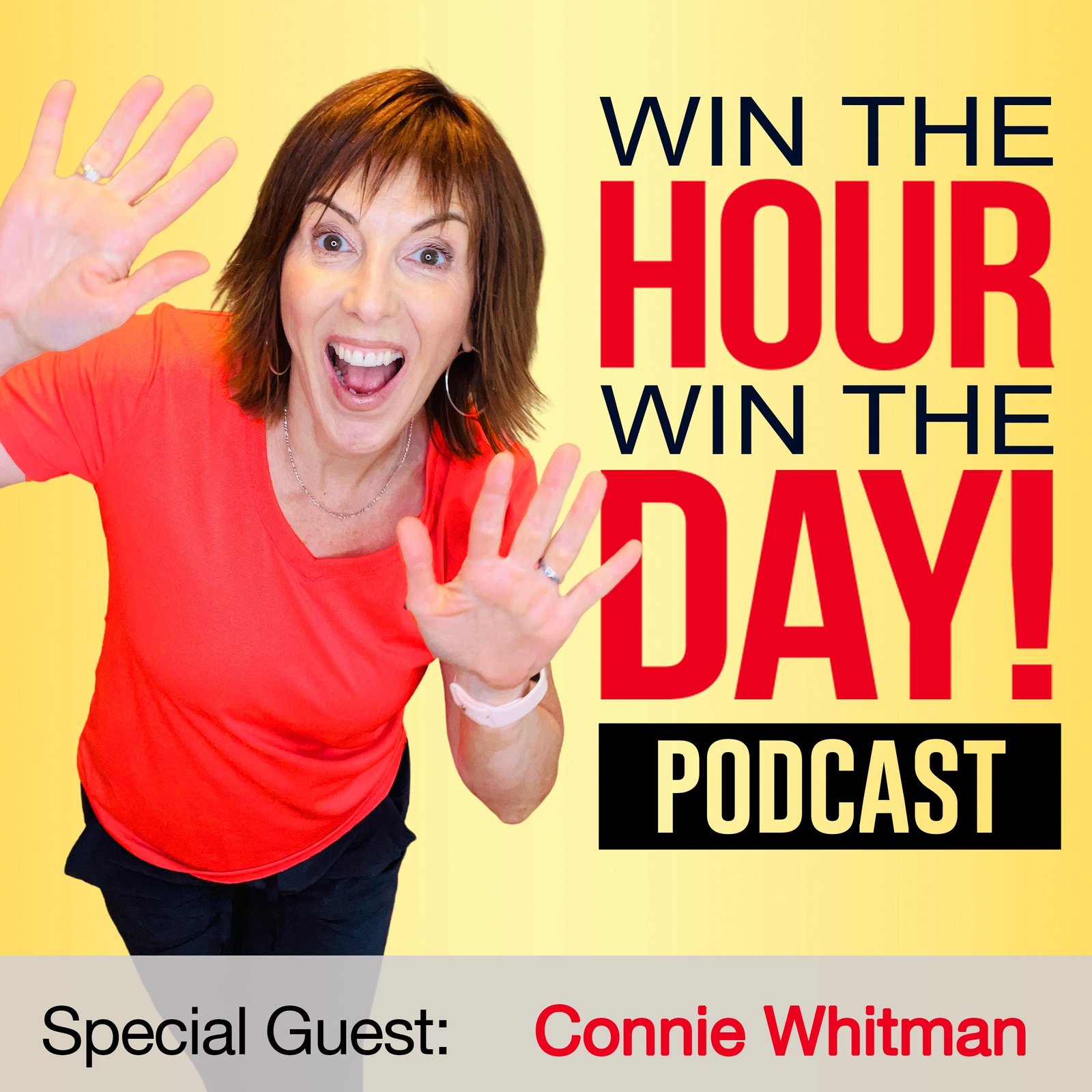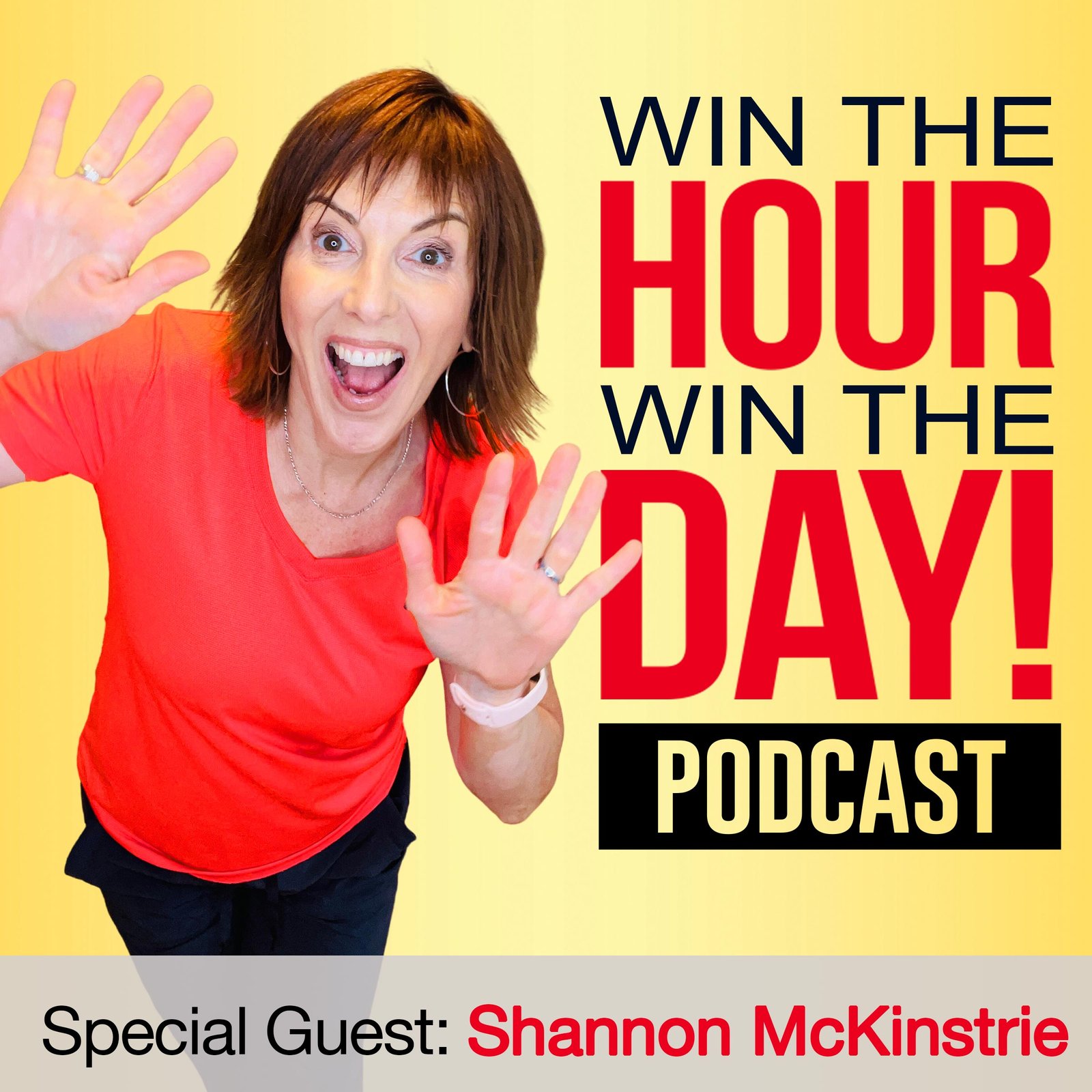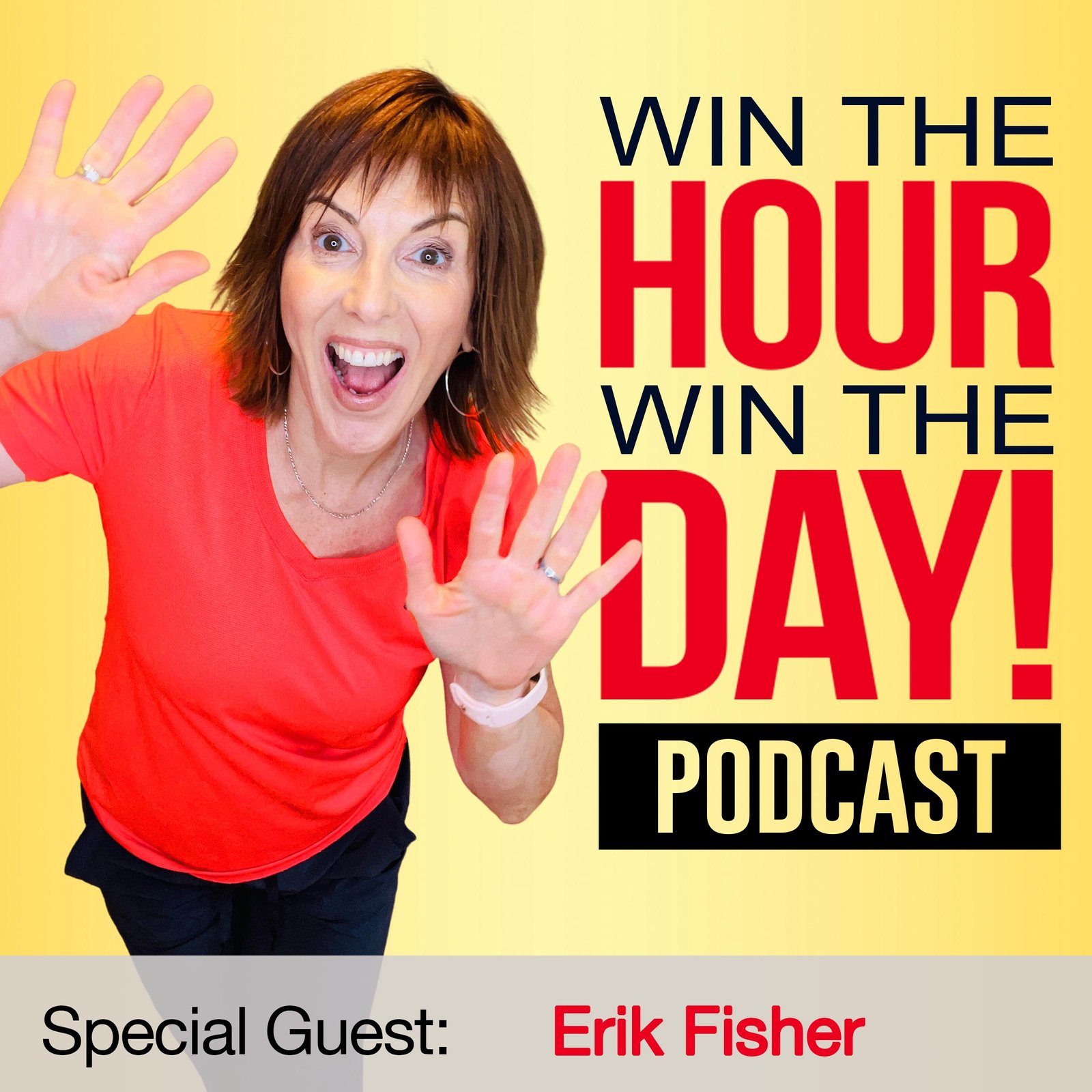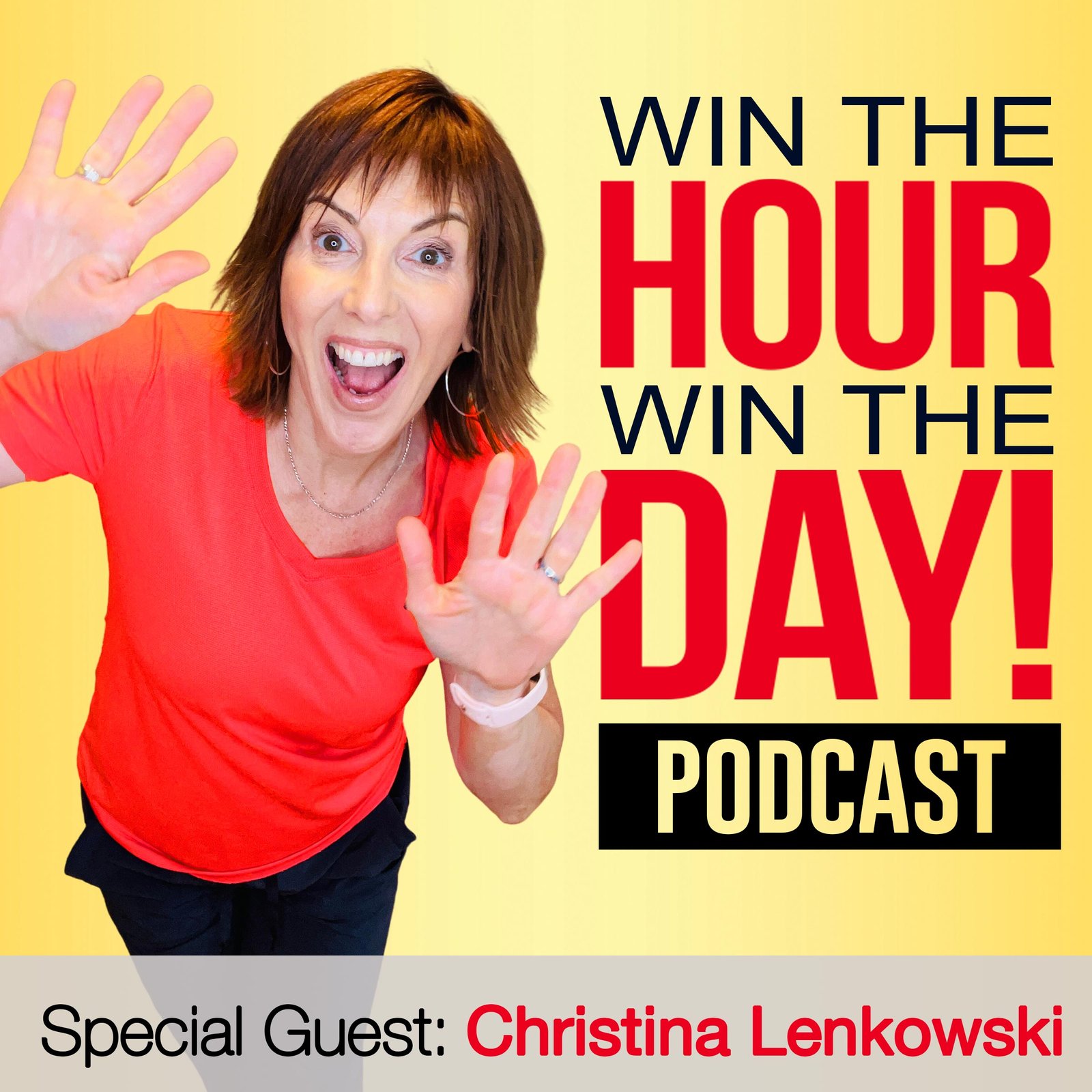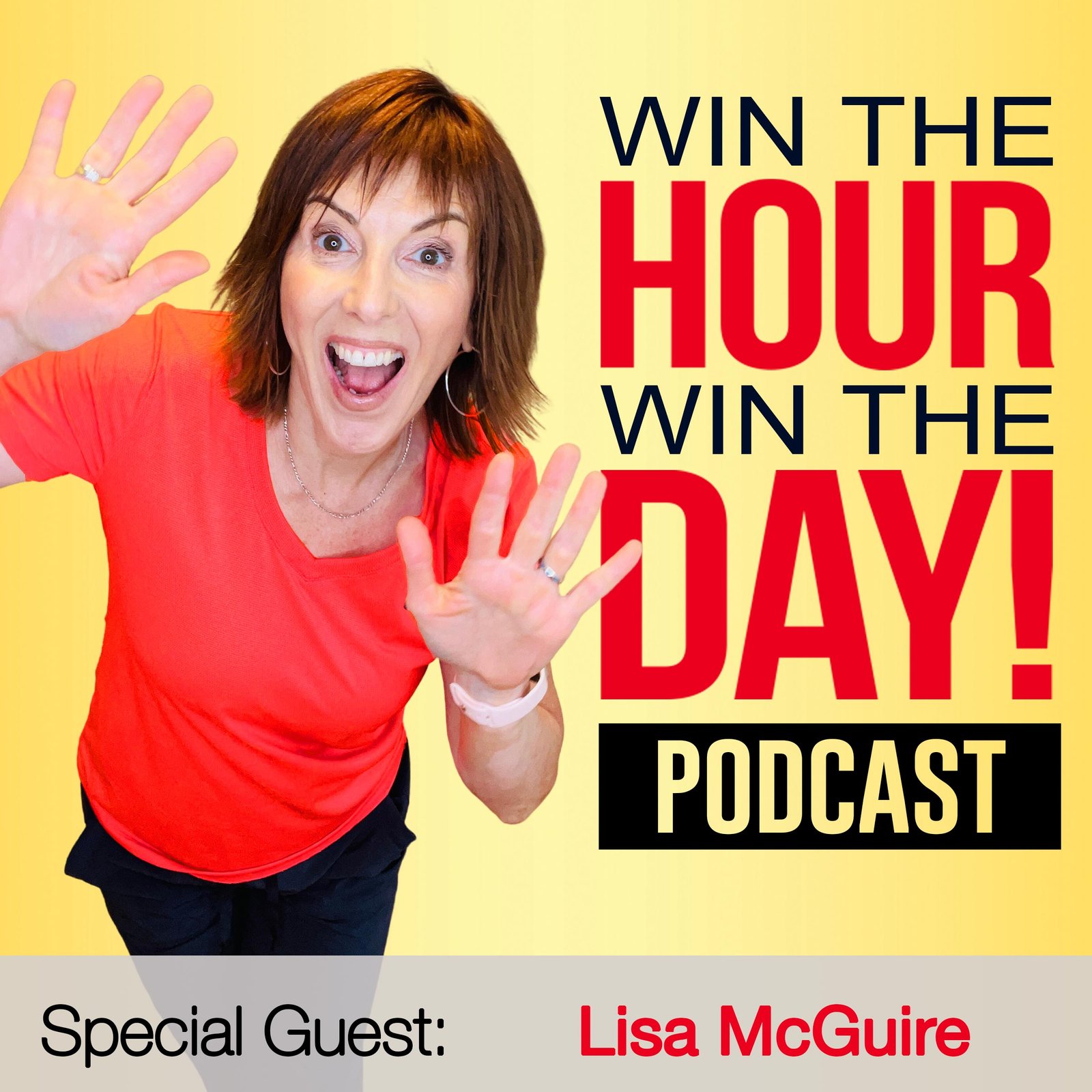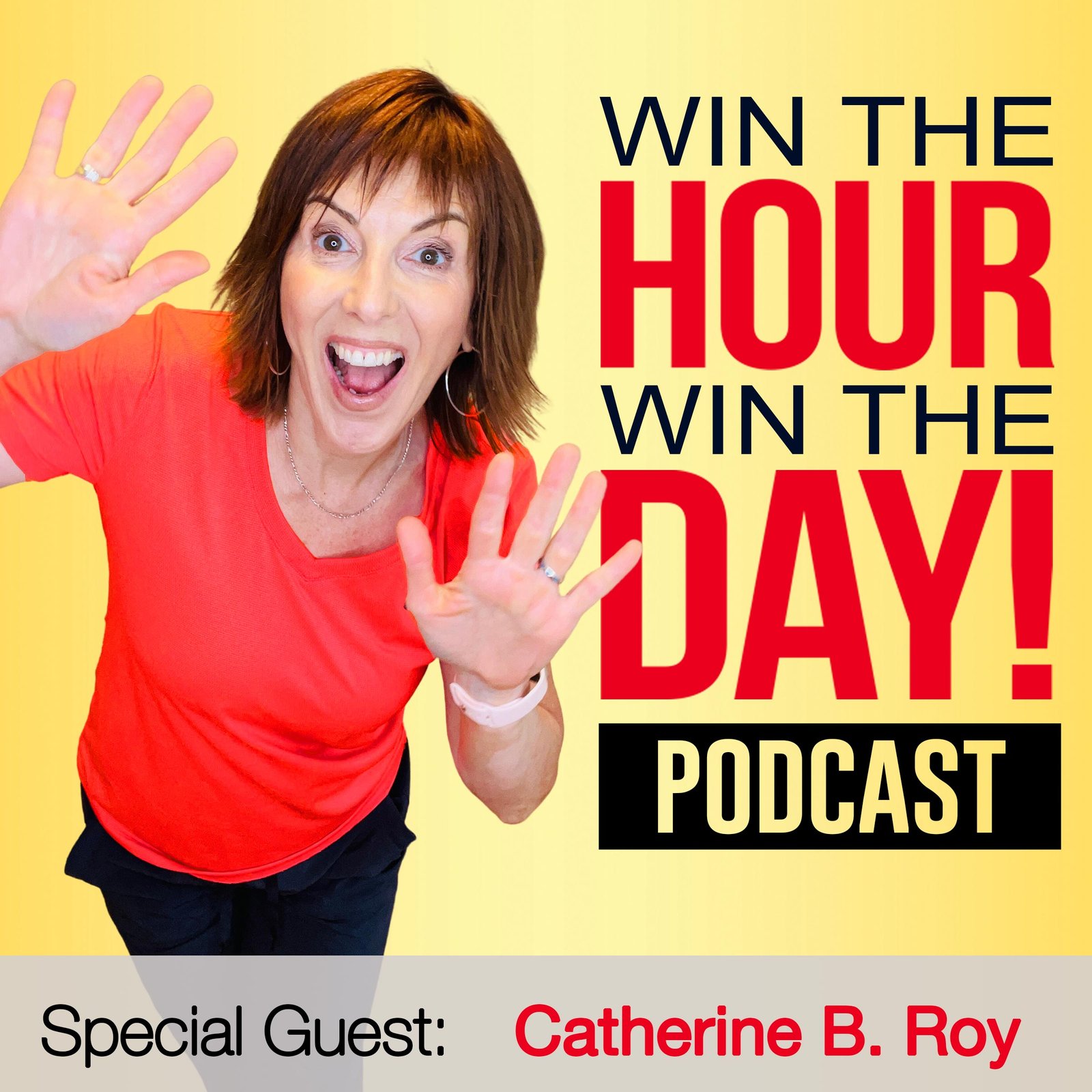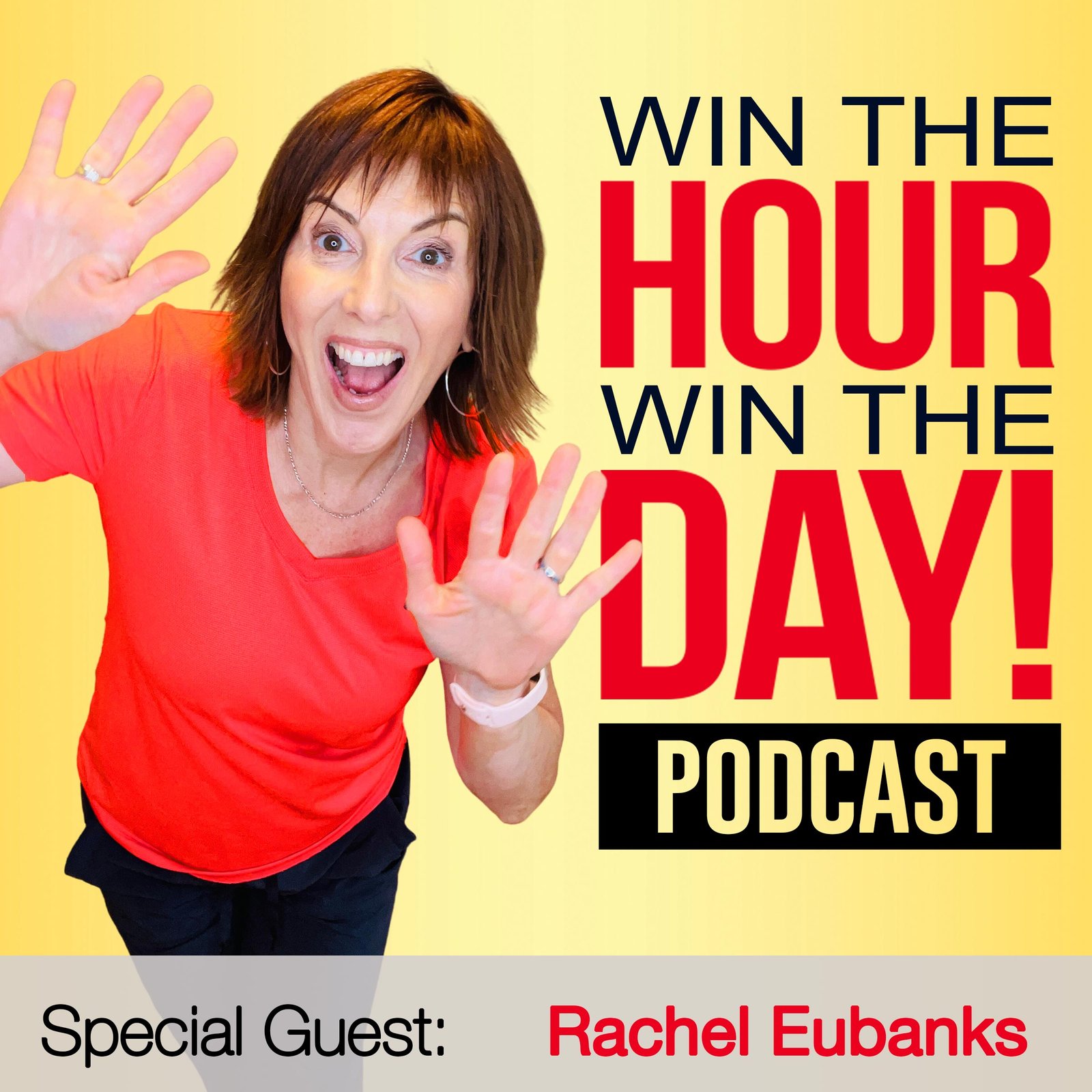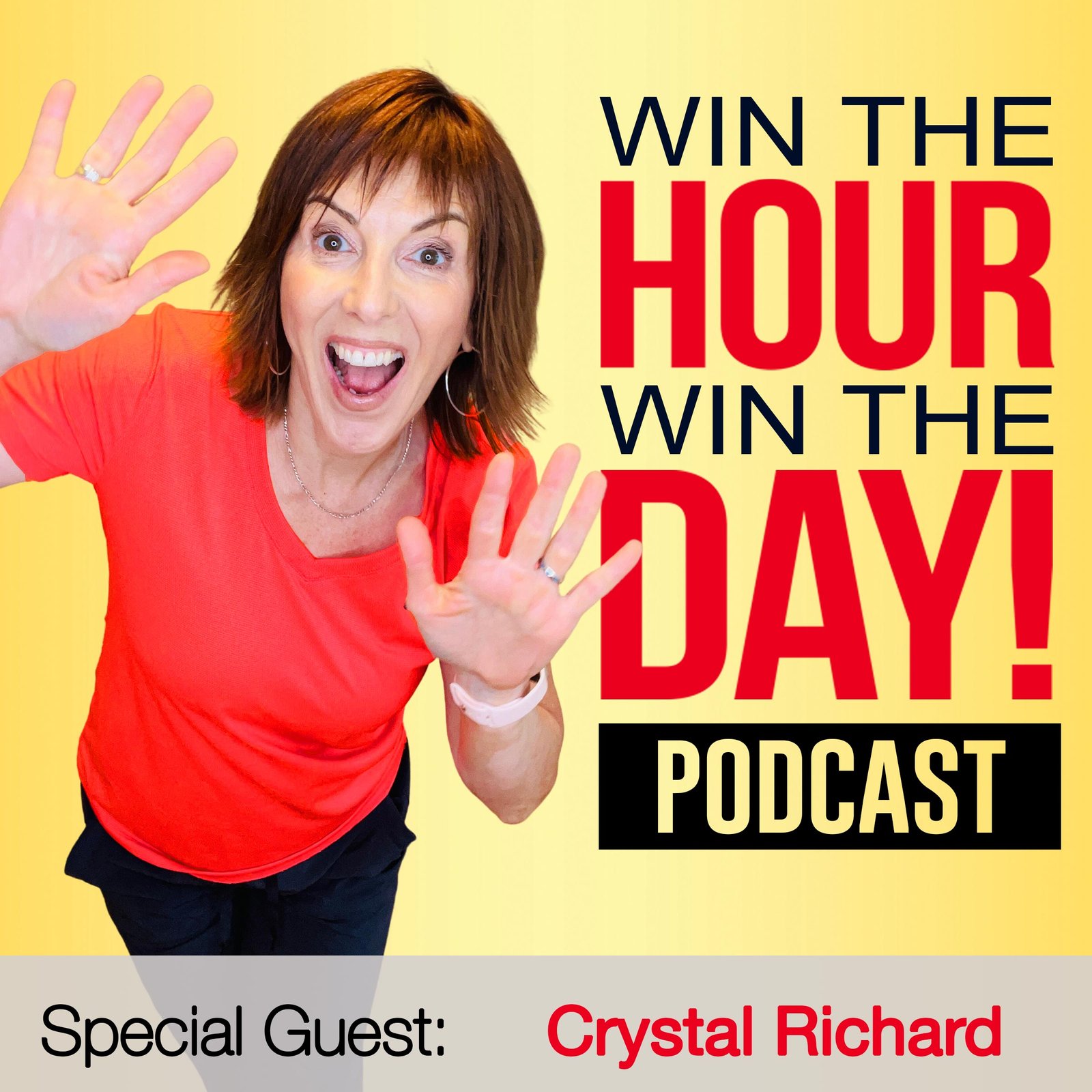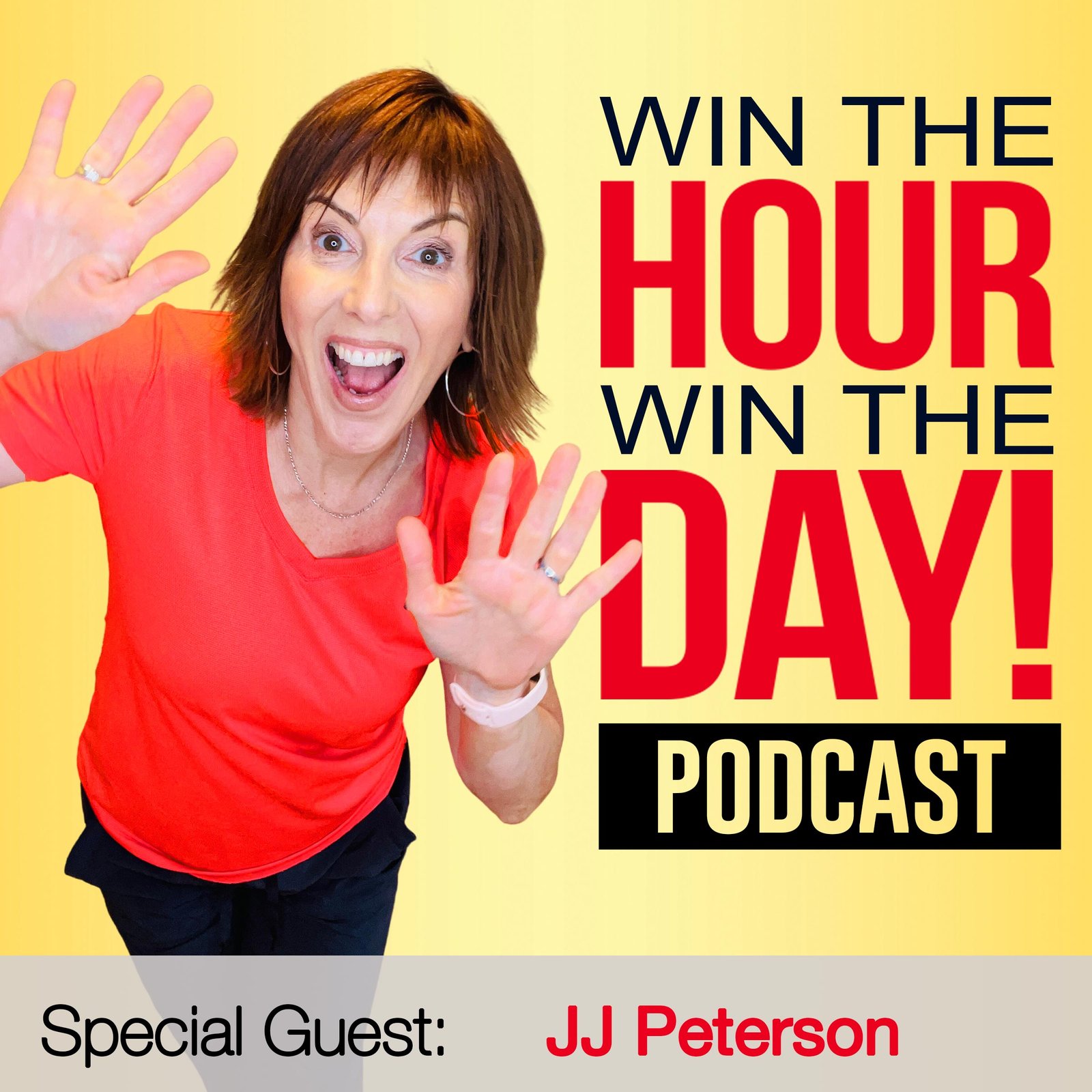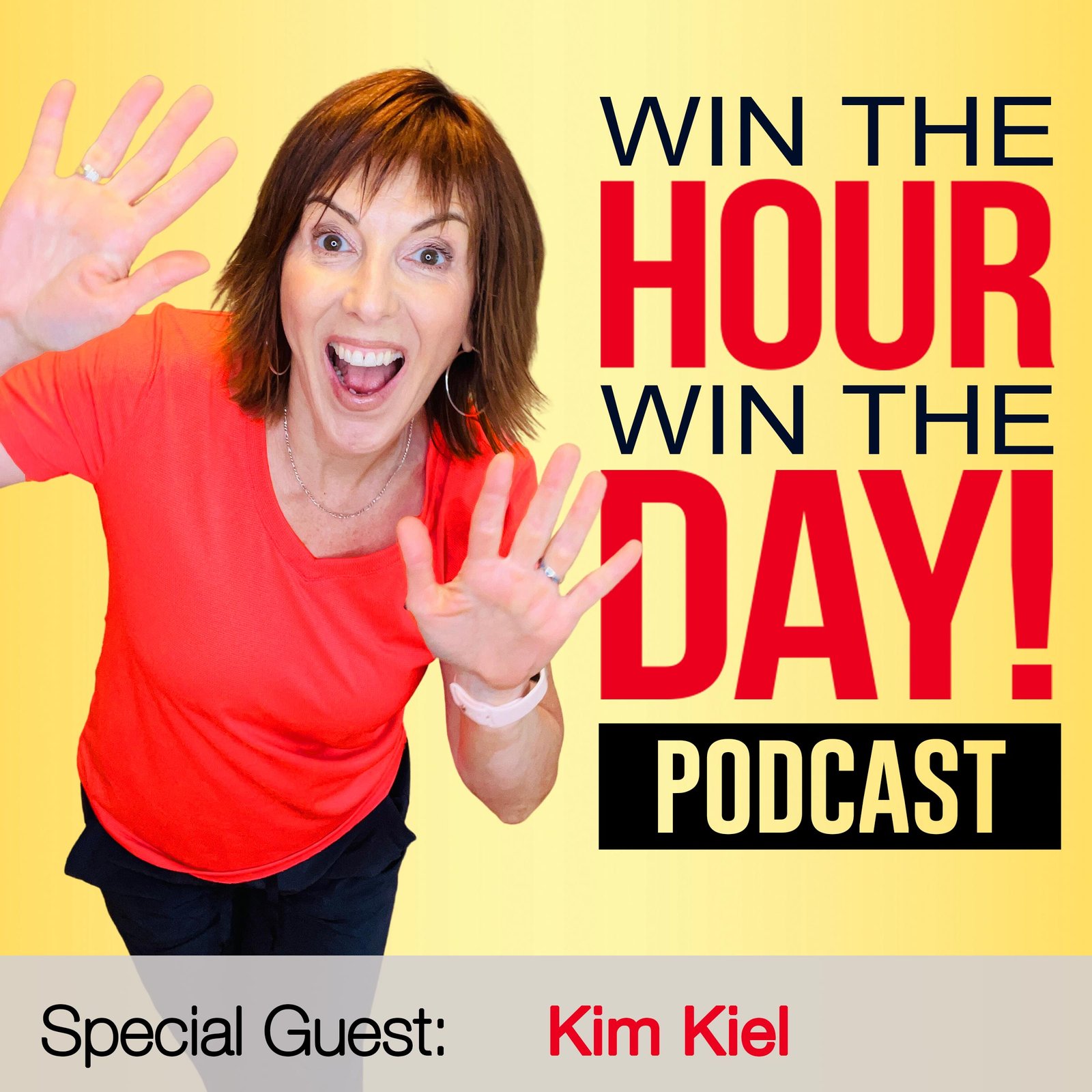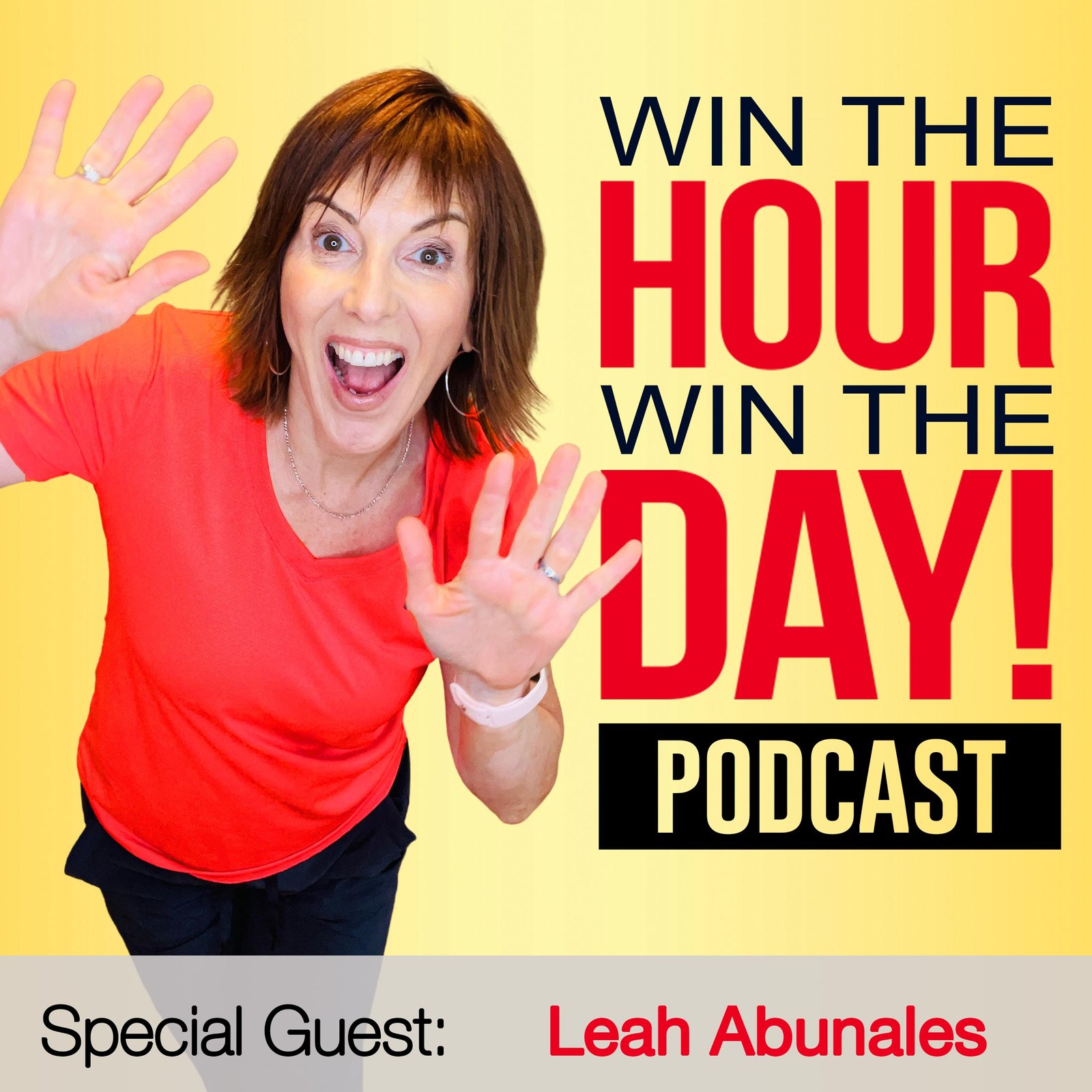Episode Summary This week’s episode of Win The Hour, Win The Day Podcast is...
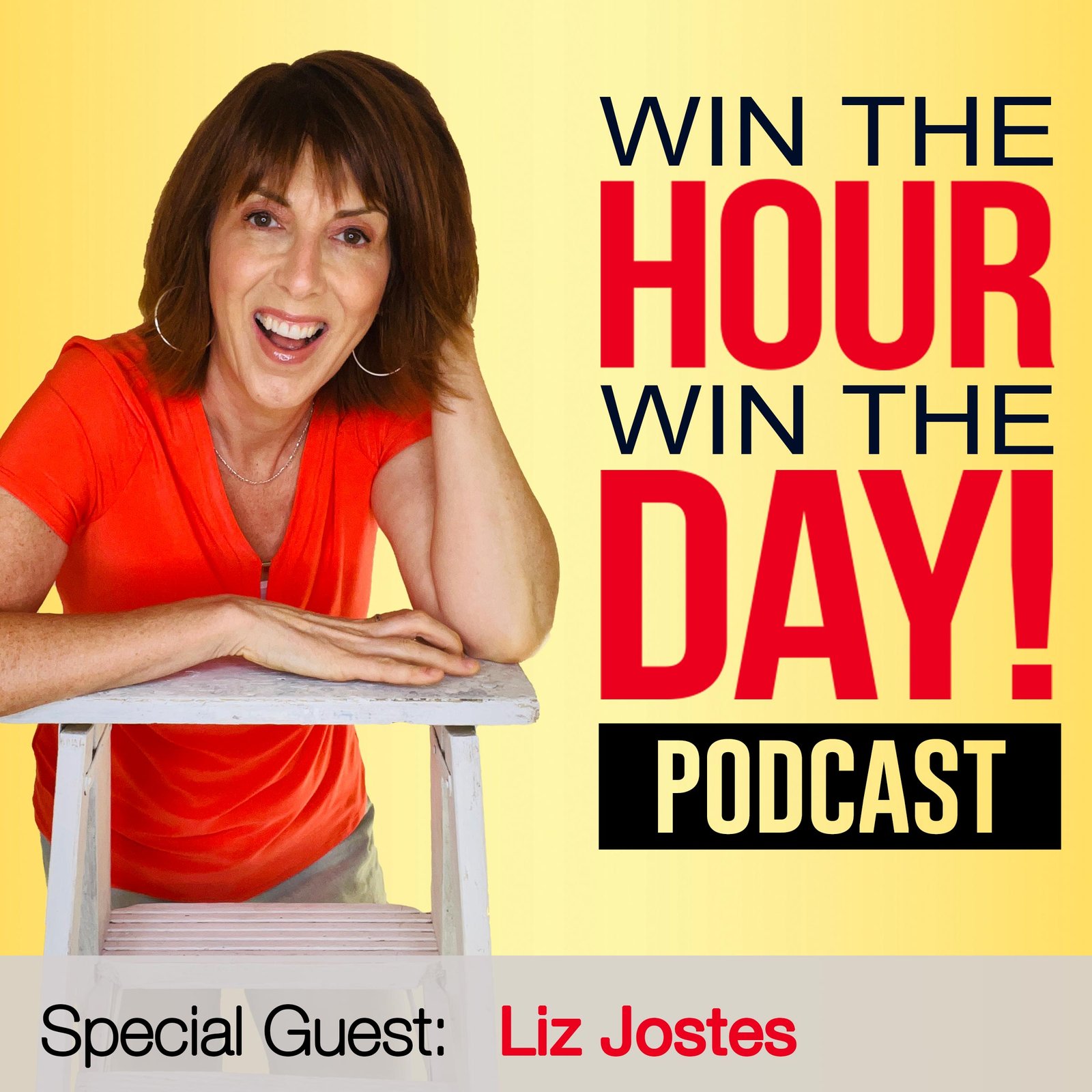
Are You Ready For Your Next Big Win?
Know your entrepreneur personality and I’ll take it from there!
Recent Podcast Episodes
Preventing Burnout with Smart Work Tools! with Kris Ward
Episode Summary This week’s episode of Win The Hour, Win The Day Podcast is...
Master Social Selling: Heidi Medina’s Strategies for Engagement
Episode Summary This week’s episode of Win The Hour, Win The Day Podcast is...
Boost Productivity and Master Storytelling! with AmondaRose Igoe
Episode Summary This week’s episode of Win The Hour, Win The Day Podcast is...
Master Video Marketing: Top Tips for Entrepreneurs with Dan Bennett
Episode Summary This week’s episode of Win The Hour, Win The Day Podcast is...
Boost Your LinkedIn Strategy with AI Tools for Enhanced Productivity! with Joe Apfelbaum
Episode Summary This week’s episode of Win The Hour, Win The Day Podcast is...
Mastering Personal Branding with NLP Techniques! with Olesija Saue
Episode Summary This week’s episode of Win The Hour, Win The Day Podcast is...
Innovative Lead Generation and Email Automation Secrets with Jennie Wright
Episode Summary This week’s episode of Win The Hour, Win The Day Podcast is...
PR Strategies for Diverse Entrepreneurial Impact! with Jennifer Singh
Episode Summary This week’s episode of Win The Hour, Win The Day Podcast is...
Convert More Clients on LinkedIn with Richard Moore
Episode Summary This week’s episode of Win The Hour, Win The Day Podcast is...
Master Business Growth on Pinterest with Meagan Williamson
Episode Summary This week’s episode of Win The Hour, Win The Day Podcast is...
24/7 Sales Boost: Video Marketing Secrets with Alex Sheridan
Episode Summary This week’s episode of Win The Hour, Win The Day Podcast is...
Master Public Speaking Tips with Nausheen Chen!
Episode Summary This week’s episode of Win The Hour, Win The Day Podcast is...
Beating The Burnout With Connie Whitman’s Success Story
Episode Summary This week’s episode of Win The Hour, Win The Day Podcast interviews,...
Craft Your Social Media Content Strategy With Shannon McKinstrie
Episode Summary This week’s episode of Win The Hour, Win The Day Podcast is...
Boost Your Productivity with AI Tools: A Deep Dive with Erik Fisher
Episode Summary This week’s episode of Win The Hour, Win The Day Podcast is...
Boost Visibility: Repurpose Content and Leverage Podcasts With Christina Lenkowski
Episode Summary This week’s episode of Win The Hour, Win The Day Podcast is...
Master Personal Branding & Storytelling with Lisa McGuire
Episode Summary This week’s episode of Win The Hour, Win The Day Podcast is...
Boost Business on LinkedIn with Catherine B. Roy’s Strategies
Episode Summary This week’s episode of Win The Hour, Win The Day Podcast is...
Scale Your Business: Optimizing Virtual Assistant Services with Kris Ward & Rachel Eubanks
Episode Summary This week’s episode of Win The Hour, Win The Day Podcast is...
Affordable PR Mastery: Crystal Richard Unveils Modern Techniques
Episode Summary This week’s episode of Win The Hour, Win The Day Podcast is...
Mastering Business Storytelling with JJ Peterson’s Guide
Episode Summary This week’s episode of Win The Hour, Win The Day Podcast is...
Revamp Your About Page: Guide to Personal Branding
Episode Summary This week’s episode of Win The Hour, Win The Day Podcast is...
LinkedIn Mastery and Video Marketing Secrets with Alex Sheridan
Episode Summary This week’s episode of Win The Hour, Win The Day Podcast interviews,...
The Systems and Processes Playbook: Insider Secrets to Streamlining Your Small Business with Leah Abunales
Episode Summary This week’s episode of Win The Hour, Win The Day Podcast interviews,...
Search Engine Optimize Your Blog! with Liz Jostes
Episode Summary
This week’s episode of Win The Hour, Win The Day Podcast is sponsored by Win The Hour, Win The Day’s Signature Coaching Program the Winners Circle. Kris Ward who helps entrepreneurs to stop working so hard interviews, Liz Jostes.
Liz Jostes gives us a fresh, and clear perspective on blogging. She demystifies the process and shows us how blogging can be a game changer for your business.
Learn:
-why blogging matters to SEO, your expertise, and credibility.
-the benefits of blogging vs. social media content
-how to easily write and repurpose your blog
And MUCH more!!
Scale Your Business Scorecard
https://bit.ly/WinTheHourWinTheDayScoreCard
Win The Hour, Win The Day! www.winthehourwintheday.com
Podcast: Win The Hour, Win The Day Podcast
Facebook: https://www.facebook.com/winthehourwintheday/
LinkedIn: https://www.linkedin.com/company/win-the-hour-win-the-day-podcast
Win The Hour, Win The Day Winners Circle: https://winthehourwintheday.com/winners-circle-masterclass
You can find Liz Jostes at:
Website: https://www.elirose.com/
LinkedIn: https://www.linkedin.com/company/eli-rose-social-media/
Instagram: https://www.instagram.com/elirosesocialmedia/
Win The Hour Win The Day
https://winthehourwintheday.com
Liz Jostes Podcast Transcription
[00:00:00] Kris Ward: Hey everyone. Welcome to another episode of Win the Hour, Win The Day. And I am your host, Kris Ward. I am really excited to talk today to Liz Jostes, and we are gonna talk about blogging. Now, I know it seems like this might even be a dried up conversational topic situation because it, it was a big thing for long time. And I feel like it got abandoned. And you know what, I have to admit, I am really just getting into it now and I didn’t understand the power of it. But anyhow, I digress. I can go on about my insights, but let’s bring in the expert. Liz, welcome to the show.
[00:00:36] I’m glad
[00:00:37] Liz Jostes: to be here and I’m glad to revive the dinosaur. That is the topic of blogging for your business.
[00:00:44] Kris Ward: Yeah. It’s so important, and I’ll tell you for the longest time, like blogging was, I don’t need to tell you, but for longest time blogging was kinda like podcasting. I was talking about, oh, I’m a blogger or you have to do this, you have to do that.
[00:00:54] And I really didn’t understand it. I’m like how are you a blogger? I just didn’t get… I didn’t get the format and so I also didn’t understand how important it was to my business cuz I thought, oh, you’re a blogger and I guess you’ve got this website and you people paid for ads and stuff.
[00:01:09] So I thought, then that’s your business and it’s not something I need to do. So boy oh boy, did I miss the boat on that one, bro. You were incredibly long time. I had no idea. And I think now where we are all talking about podcasts as much as we love them, then I think blogging in the concept of what it does has been abandoned. So why don’t you tell us why we need to be blogging and what does blogging really mean?
[00:01:32] Liz Jostes: So blogging tends to branch off also into a few different parts of your online marketing. So we will naturally talk about some of those other pieces as we talk about blogging. I originally started blogging just personally back in 2008 and then over 11 years ago for my business.
[00:01:48] So I have been blogging for a long time and I definitely have seen all the iterations and the different viewpoints like you were mentioning that people have on bloggers. Blogging some of the… just the real easy benefits just right outta the gate. Blogging is a chance for you to show your expertise and your knowledge.
[00:02:04] It is original content that you are producing too. A lot of times when you’re really focused on really doing what’s best kind of for your business in just your online marketing, we often just as a consultant, are trying to focus some clients on hey, don’t get so caught up in your social media posts or whatever the current trend is that you must follow.
[00:02:27] Reels or stories or whatever, boomerangs or whatnot, because you wanna invest in owned, you wanna invest in your website because you own your website, you control your website, and it’s not, if Facebook goes poof tomorrow, LinkedIn changes something. Where do you go with that?
[00:02:43] What are you left with? So blogging is a way to add you each new blog post is a new link published on your website. When you start talking about SEO and your website authority and getting found on Google or Bing or Yahoo. Do you think you are better off if you have a static, like five or six page website, or you have a website that has maybe 25 blogs or a hundred blogs? Like mine’s over 500 blogs.
[00:03:09] Kris Ward: Let me jump in here cuz you just brought up a couple really good points.
[00:03:12] Liz Jostes: Sure.
[00:03:12] Kris Ward: So first of all that’s a really powerful point because what I thought long before I understood the power of blogging and that I had to own it and all this stuff, is we were writing articles and putting them up on LinkedIn, right?
[00:03:22] Doesn’t that sound like the thing to do? Look at me. I’m so responsible. Cut to last year when we started taking blogging seriously and understanding the power of keywords, and we’ll talk a little bit more about that. Then, when I’m in SEM Rush and then you can hit a button and says, okay, is all this original?
[00:03:35] Of course it’s original. It’s mine. . Had borrowed from articles of mine that I had written on LinkedIn. . And they’re saying, no, this is not original, cuz it was on LinkedIn last year. That’s mine. But it was on LinkedIn. So you’re so right. I didn’t own that.
[00:03:49] And now because I put it on LinkedIn first, I don’t. Right? Cause they’re saying, oh, it’s coming from LinkedIn. . So that was a big thing, is just putting your stuff, when you write a blog, when you write an article, whatever it is, you wanna refer to this as goes on your website, you own it, you’re driving traffic to that.
[00:04:05] And then moving from there. You, I’m sure you’re the expert in this. You’ll tell us then how we can repurpose it. But you have to be the starting point cuz it comes back to bite.
[00:04:14] Liz Jostes: Yeah. And some people too on the LinkedIn point specifically because people are tempted to write that long form content for the LinkedIn publisher.
[00:04:23] So there are a couple ways that you can approach that. And what some people do is you can start an article there and then, just point people back to your website for the rest of the article or Google. And when I say Google, I also mean being in Yahoo, but Google is just like the biggest search engine.
[00:04:38] So just by default we say Google. Google has gotten smarter in the last couple years, so it does do a much better job now of understanding where that content was first published, cuz for a while it’s like LinkedIn is gonna outrank you, right? Because they’re just this worldwide site, so their domain is more important, blah, blah, blah.
[00:04:57] But now the general rule of thumb is if you give it two or three weeks, so say if you publish it on your website, your blog, give it two or three weeks, then you can republish it in full if you’d like over on LinkedIn and Google understands that it was published on your site first and under, and they doesn’t view it as like a duplicate content situation.
[00:05:18] . So if you do feel very strongly about continuing what those long form articles on LinkedIn publisher, you could do it that way. Or sometimes people even alternate, they’ll do, depending on how prolific a writer they are. They might keep it completely pure and do one blog post on their site and then the next time they write they do it on LinkedIn and they alternate back and forth, so there are a few different ways for LinkedIn specifically that you can try to approach that.
[00:05:42] Kris Ward: Yeah. I just thought, maybe I’m wrong. My understanding was if I had put it on my blog first and then left it few for you few weeks and put it on LinkedIn, I would’ve been okay cuz I owned it.
[00:05:51] Liz Jostes: Yeah. Okay. But it’s Right. But I think you were saying you heard you had put it on LinkedIn first, but it was like a year ago or something. Yeah. So they’re seeing it as LinkedIn was at original home for that content.
[00:06:01] Kris Ward: Yeah. I agree a hundred percent. That’s exact I’m supporting your discussion about you. We have to have it and own it. Yeah. The other thing too, we’ve just touched on really lightly, we don’t wanna get too deep in this though, as you talked about, the SEO. So search engine optimization. Sure. And the keywords. And so here’s what was so awakening to me, is because I, and we’re not gonna get into it too much, but I do think it’s something we should at least address when we’re talking about blogs.
[00:06:26] SEO stuff to me just sounded like, oh my gosh. It’s like talking to my accountant about taxes. Okay, you know what? Like I don’t know enough to know what I don’t know. And then you talk to an SEO person and you just get a headache and you wanna lay down. At least I do. Okay. We’re fine. . But what happened with the blogs, what I learned with some basic training is, let’s say I’m talking about how we get our clients in the Winners Circle, 25 hours back a week within the first month of working with us. And we talk one of the things that we work with them on is building their team. Great. That’s just one component, but I’m using the word team because we have a whole philosophy around that.
[00:06:58] People searching for that word, searching for information are calling it outsourcers because how can I have somebody that I can really afford and day I don’t have to pay full-time? I’ll, yeah, that’s an outsourcer. So I’m writing blogs, till I’m my wearing fingers down to a bone about building a team and what a difference that is and how a big difference it makes in your business.
[00:07:16] But now just by changing that one word from team to outsourcer, because that’s the word, people are keying in, oh my gosh, night and day in my blogs. And so I thought I had to have some huge degree in SEO, but just the power of knowing, that other people are using this term versus that term really changes the game for blogs.
[00:07:37] And I think not knowing that was another reason why I’m like, I’m writing these blogs, no one’s paying attention, and what do I care? So I thought that was really profound as well.
[00:07:45] Liz Jostes: Yeah. And definitely like you said, like SEO is its own topic all by itself. And so you do wanna learn at least the basics and do some of that optimization cuz just about every website platform now has native, built-in SEO capabilities.
[00:07:59] But what I like to say to people is think of it like this, like the more fishing lines you cast into the sea of Google, the better chance you have at catching those fish. So if you have three services or five services, okay, so you have those five service pages, where are you gonna come up with, how are you gonna approach the opportunity to cast more lines? It’s through blogging.
[00:08:21] Kris Ward: Yeah.
[00:08:22] Liz Jostes: And when you keep writing about different topics related to your business I like to think of it as relevant and complimentary to your ideal client and the kind of stuff they’re gonna be searching for. You have a chance to catch more fish, but also all of those blog posts demonstrate that expertise in all your experience.
[00:08:41] And that’s how that whole know and trust factor that we talk about from just like the selling cycle in general. That’s one way that you can build that know and trust factor. And then as you touched on earlier, Kris, once you have that original content, you can repurpose it in its full form.
[00:08:57] You, if someone has a question on something, you might even say, Hey, I have a blog post on that. Or you can take pieces from it and chunk it up into individual social posts. If you have five reasons or five benefits for outsourcing, each one of those benefits could be its own, social media posts that you put on all the channels that you’re on.
[00:09:17] Or you can do a series of just real short, cuz everyone’s attention spans are so short these days, in the online world, maybe you record a quick video on your phone for each one of those five, and now suddenly you have five little videos that you can share on your social. Blogging can feel very daunting cuz people are like, oh my gosh, it’s gonna take me so long to write this one post.
[00:09:38] But that one post serves so many purposes for you. And it lives on your site forever. I have post posts that I get traffic from that I published years and years ago, the think of blogging as the gift that keeps on giving . So yeah.
[00:09:52] Kris Ward: It doesn’t die as we know, things don’t melt on the internet.
[00:09:55] Liz Jostes: Yeah. And once you share that blog post link, say to your social channels now, it’s not to say that you can’t share it again, six months from now. Yeah. Or whatever. Yeah. So there’s so many ways to keep reusing that content. You have that, you have those thoughts, you have that knowledge. It’s in your head, put it in that long form content on your blog, and you just the benefits are endless. It just keeps paying you back in so many ways.
[00:10:17] Kris Ward: I think too, you bring up some really good points. It does make Google look like, and if nothing else, you’re refreshing the page. It’s current. It’s relevant information versus a website you built, three, four years ago now
[00:10:27] Liz Jostes: And you haven’t updated since. Yeah.
[00:10:29] Kris Ward: Nothing. And so a blog is a way for Google to think, okay, here’s new information. So it really does matter to them. But also what I find too is for me is as much as it first feels ugh, like I need to do one more thing, it really does help me with my messaging and perfect it more. . And then add to the fact that how we have it set up with my team is they’ll give me what we call an inspiration blog. So they’ll find somebody that’s doing well on, the top benefits top three things you need to know about or outsourcing, or the positives and the negatives to out the pros and cons to outsourcing.
[00:11:05] So then we’ll take a look at that blog doing well, and maybe I will do the pros and cons and I will pick different points. Or even if I did the same points, it’s going to be my story, my language, my experience, my clients. . So it’s a whole new thing. And it really does also show me what the other people that, for lack of better words, competitors or my field are doing. . So it then enriches my messaging even more. Now I’m like, oh, I see. I don’t have a reason to jump up and go read all their blogs. You think you’re gonna do it or you get lost in the rabbit hole, but when you’re working on your own, then I think it really gives you the bandwidth of what’s happening. And I think that’s really helpful to your own message.
[00:11:42] Liz Jostes: Yeah, absolutely. Yeah, it absolutely is. And another thing is too, another way to kinda think about it from, I guess a different direction, cuz when we were talking about like the static site and how you have Google because Google does like fresh content and more links back to your cider, connected to your site, increases your domain authority, but it also gives people a reason to come back.
[00:12:00] If you have a static site. Why should someone come back and recheck out those services or the products that you sell? But say, if you do share a link to a blog post that is relevant to your ideal client, they click through on that blog post, they read it, and then they might be like hey, I’m gonna go over to their services tab, or I’m gonna check their, I’m gonna see what kind of upcoming appointments that they have available.
[00:12:23] The more times you can get people back to your site, cuz your website really is your online home base or for online businesses, it’s your entire, it’s like the online version of a brick and mortar store. Yeah. Without having that fresh content, like people don’t really have a good reason to keep checking you out.
[00:12:37] So the more times you can get people back on your site, that also increases your chance of increasing your sales.
[00:12:43] Kris Ward: Yeah, and I think you bring a, I thought that was a really good point too. If somebody asked you a question in the sales process, you know what? I wrote a blog on that does make you look like the authority.
[00:12:52] Sure. Like instead being, oh, let me answer that question for you quickly, blah, blah, blah, blah. It’s oh yeah, I wrote a blog on that. Because I deal with so many people and I get that question a lot, and I’m an expert, and so I’ve written this really well put together. Here you go. . So I think it just adds to a professional element as well.
[00:13:07] Liz Jostes: Absolutely.
[00:13:08] Kris Ward: And I think it really does serve you on every level. Okay. What are some mistakes do you feel people are making when they’re doing or not doing the blogs? .
[00:13:16] Liz Jostes: One thing actually immediately ties into the point you just made about getting questions. One thing that I hear people just think what would I blog about?
[00:13:24] I have nothing to blog about, but that’s the thing. Any kind of business, it doesn’t matter what topic. We blog for a funeral home. You know what I mean? Every business gets questions. It doesn’t matter what kind of client or customer you have, you can immediately sit down as a business owner and write a list of at least 10, probably 15 or more.
[00:13:44] Like commonly asked questions, think of your FAQs. You get those kinds of questions about your business, your processes, you know how stuff works with you about your services. That’s where you start. Everybody can come up with content to blog about, but starting with those frequently asked questions is a great place to get started.
[00:14:05] So I would say one mistake is people say they don’t blog because they think they, what could they possibly write about, but or they think that no one will be looking for this kind of information, but you get questions via email or on the phone or via your social channels all the time. There’s things to talk about and chances are your competitors, even if they’re not local, look for topics related to your business on Google. I bet you can find other competitors that are in your same niche that are blogging so you can to them for ideas as well.
[00:14:34] Kris Ward: Yeah, to that point, I think, I swear I’m gonna have to get a tattoo that says FAQ, because you hear that all the time, and then you get caught up in the day-to-day of your business, right?
[00:14:42] So one of the things with us with outsourcing is beauty of it or when working with us and we help you find, hire and onboard outsourcers is just, it’s like getting running shoes. You need running shoes to go to the gym. It’s not the big part of what we do. . But you need to have that to proceed with the other stuff we do.
[00:14:56] And when I say to people, even if you need a million dollars, I wouldn’t have an outsourcer start 40 hours this week. It’s just too much for you. You’re not ready. so you can definitely afford it, and they can work two hours a day for the next four or five weeks, and we can slowly build that up.
[00:15:10] Now, people ask me that all the time. But somehow in my P Brain, I always think that it’s that’s that one question, that one confusion of, maybe I didn’t explain it well or whatever. Let me explain that to you. But you’re right, I get that question all the time. ,
[00:15:24] I can write a whole blog on that. I think we get caught up in the FAQs or oh, somebody like you don’t see the pattern. You just think that’s a one-off question, right? So I think we have to be reminded again and again about the FAQs are content. .
[00:15:37] Liz Jostes: Yeah, exactly. Yeah. And I think too cuz business owners and I see this, whether it’s creating blogs or even if they’re, when they’re trying to write their own website copy, everyone you are the center of your business.
[00:15:47] So everything is just goes without saying for you, it’s so natural. Yeah. It seems so obvious. So you, it’s really easy to forget this might seem so basic to you. For a whole lot of people out there, it’s not basic to them. Yeah. So don’t write off topics that you know, that you might think are just like no one know.
[00:16:08] Everyone knows that, or no one would look for that. No it just it’s because it’s your business where it seems really obvious really easy but, no, you still need to have all those. Think of it as like 1 0 1 level kinds of content. You still need all those foundational pieces of content, those blog posts.
[00:16:23] And then you can also build from there. And when you think more broadly about blogging and planning your content, you do wanna link back to other blog posts. So yes. That way you’re not to explain topic B, you’re not having to completely explain topic A in order to make B make sense. You can go on the back to A when you’re writing Bs that’s another good page.
[00:16:43] Kris Ward: I think Google likes that too, right? When there’s cross links in the blogs. Okay.
[00:16:47] Liz Jostes: Oh yes. Interlinking is definitely helpful from an SEO standpoint and from a website visitors standpoint, you’re increasing the likelihood that they stay on your site longer because they’ll click through to other pages or blog posts that you have linked to.
[00:17:01] Kris Ward: That’s a good point. I bet you if the martians landed, they’d be like, okay, apparently Google is their God. We must find this Google.
[00:17:08] Liz Jostes: His mythical creature.
[00:17:09] Kris Ward: Yes. We’ve not seen him, but we’ve heard a lot about him. Okay. Awesome. Okay. What else do you think we’re missing on that boat?
[00:17:15] Liz Jostes: I think people will feel intimidated by the blogging or what I see is if people, they get really excited about the idea of it you want to take that, that the tortoise, the slow and steady wins the race.
[00:17:29] You don’t need to be you wanna start blogging at a pace that you can maintain. But also know that every blogging platform you can save stuff as drafts, or schedule for the future. So don’t get, so it may be like, maybe for some people oh, it’s quiet in their house on a Saturday morning, and they feel like that’s their time to write with their cup of coffee.
[00:17:53] And maybe they, they start working on a few drafts. Go ahead and if you wanna do like batch writing or if you have a good day of the week or time of day where writing is better for you it’s going to be hard to force yourself to write that longer form content if it’s just not like you can’t make your brain do something that it’s not in, in the mode to do.
[00:18:12] Some people find it easier to write at night. Some people wanna do that long form writing first thing in the morning or at certain days of the week. Don’t feel like you need to write an entire blog post in full at one time and publish it weekly. No. So if it’s like Monday morning is when I wanna publish the blog, no.
[00:18:28] Write it when it works for your brain and your schedule and your creativity. And if you wanna work and save and draft and revisit later, that’s great too. And then schedule it for the future. So maybe if you have a week where you get a few blog posts done and maybe you feel like hey, I can’t right now, commit to more than one blog post a month, cuz anything is better than nothing. Right? Consistency is everything,
[00:18:50] Kris Ward: Right? So even once a month is consistent, that’s great. That’s great. It does not have to be another weekly chore
[00:18:56] Liz Jostes: Right? Yes. So don’t bog yourself down or get overwhelmed by it. And even if you get excited by it, that’s great, but it really is better to have that slow and steady pace and know you can do things like, save and work and draft.
[00:19:07] Steadily to make, get to the end of that final product and then schedule for the future. So I think that kind of helps people when they understand that those are options for them that kind of helps it not feel so overwhelming to write, this longer form piece of content.
[00:19:22] Kris Ward: Yeah, Liz, if I can add to that something that I’ve done cuz we’re all of efficiency and getting more done, less time and stuff like that. Something I did that I find quite helpful is I go into Google Docs and there’s a tool audio record. You guys reach out to me. Yes. I’ll show you that. Yes. And I just click audio.
[00:19:37] Port and then I just talk. . And you’ll find that you talk, your product, but then when you go to write, you try to make sounds, things sound official and you’re looking at a white screen, it’s all whatever. So I do one full thing of just talking, like I might look at my inspiration blog and says the pros and cons to outsourcing.
[00:19:52] . And then I just follow that framework and talk. And then even if I don’t add punctuation, mind you, I’ve been doing it a while, so I can say the dog crossed the street period, but you could just do it all ugly and then go back and edit and add grammar and edit. Sure. But it comes from a much more digestible, it’s quicker.
[00:20:09] . Cause it doesn’t matter how fast you can type, if you can type 60 words per minute, you talk about 120. And it also sounds more like it’s more enjoyable to read cuz we’re supposed to be conversational instead of essay style. . And I found that really helps. So then it’s not thisbig horrible task of having to write this long form content on a big old, long piece of white, white screen. Just looking at me, I almost said paper. I sound like I’m 95 years old. But anyway.
[00:20:34] Liz Jostes: And what some people have done too. Cause I think the audio recording is a great tip and it’s built in to your Google, so you can just easily do it. If you have someone like, small business owners, you have someone on your team who maybe is more of a writer you can do the audio thing like you said, or maybe you say here’s five bullet points, and expand on it. Yeah. So that’s another way to do it. I had one client who he prefers to do the video version first, so then he could take. And then you also have the video content for the people who like videos.
[00:21:01] And then you have the blog content. You know it’s because you don’t need to reinvent the wheel when you’re doing this. Yeah. You can have a video version of the same thing you’re doing the long form blog post. But he would do the video first. We’d listen to the video and then write the blog post from that.
[00:21:14] So that’s another way to approach it too. So there really are, especially when you’re talking about outsourcing, there really are people either on your team or outsourcing, or maybe one format just works a little bit easier for you to get rolling, and then you can edit and refine from there.
[00:21:28] Kris Ward: These are all really salient points and I think it’s a really important topic and I’m so glad that we revisited, cuz I know I missed the boat on this four years and I think it was just easily misunderstood. So Liz, where can we find more of your brilliance? .
[00:21:42] Liz Jostes: I like that you called it brilliance
[00:21:44] Kris Ward: Yes. It is.
[00:21:45] Liz Jostes: My business is Eli Rose Social media and my website is elirose.com. That is e l i r o s e.
[00:21:53] Okay. And
[00:21:54] Kris Ward: We will have that in the show notes for sure.
[00:21:55] Liz Jostes: Awesome.
[00:21:56] Kris Ward: Liz, thank you so very much. I really think this was a conversation worth visiting and revisiting. Yes. And everyone else, we will see you in the next episode.

